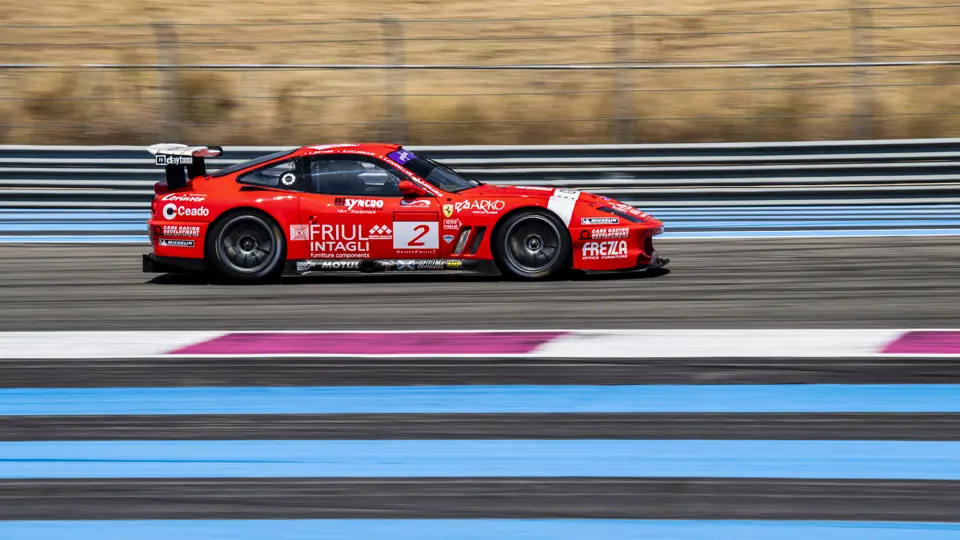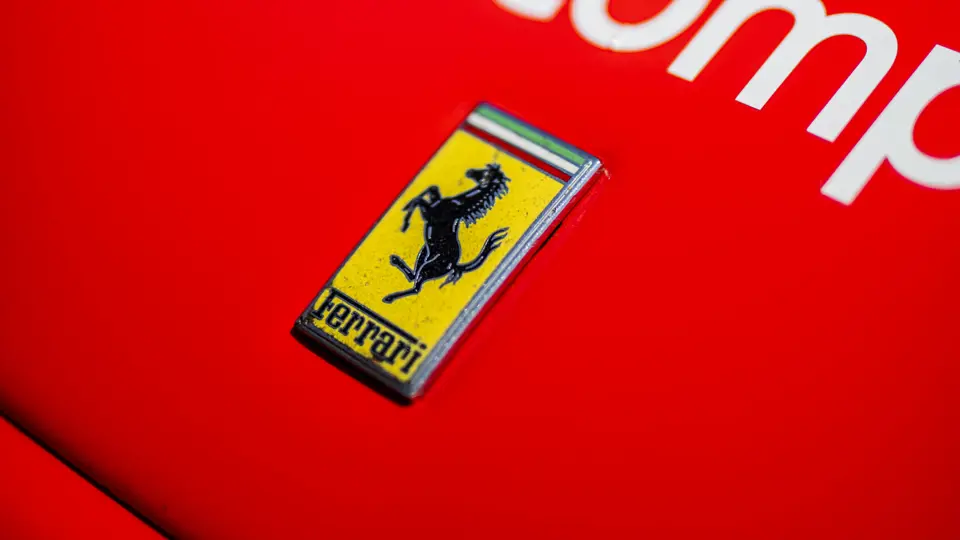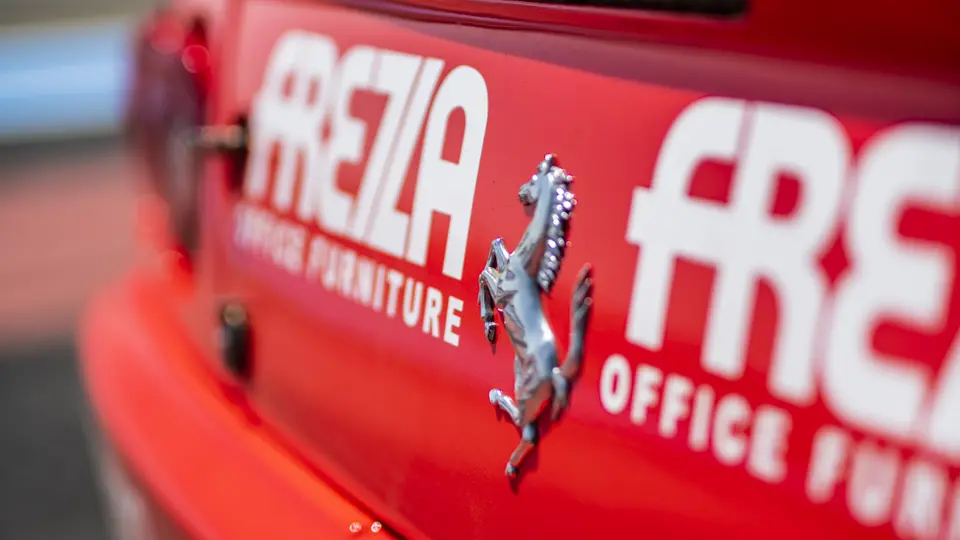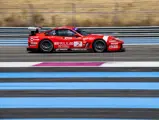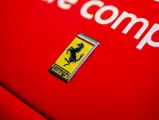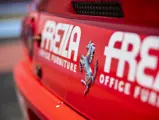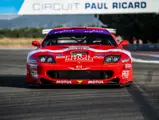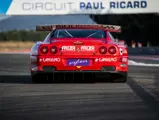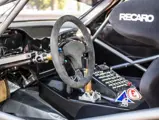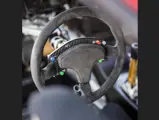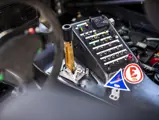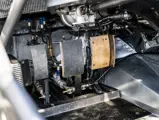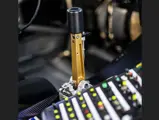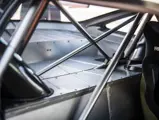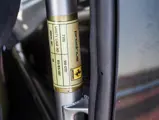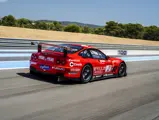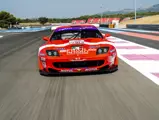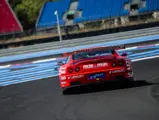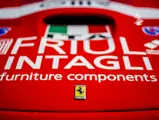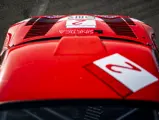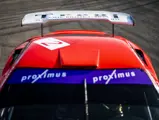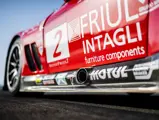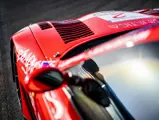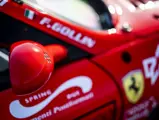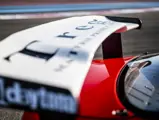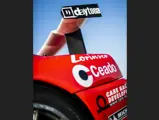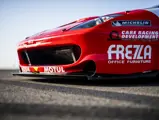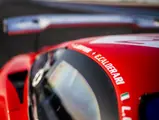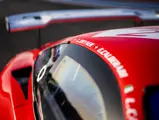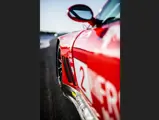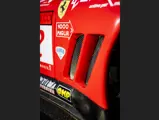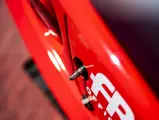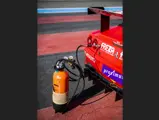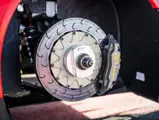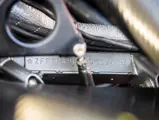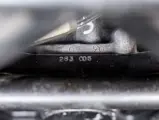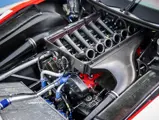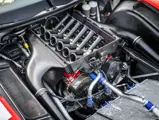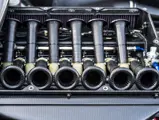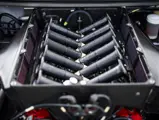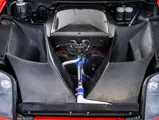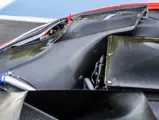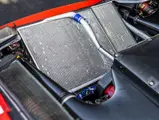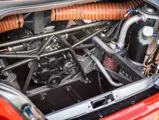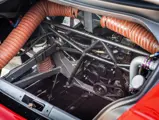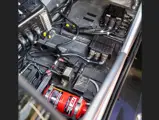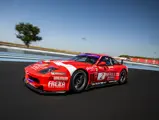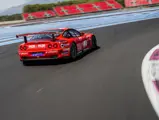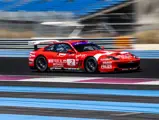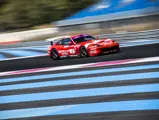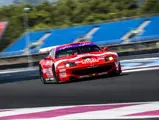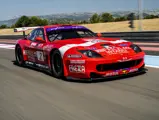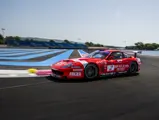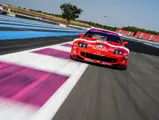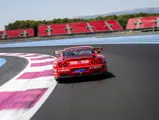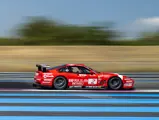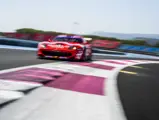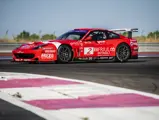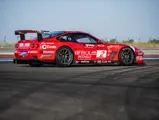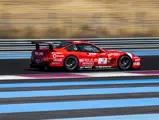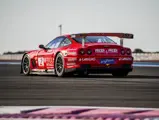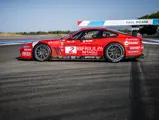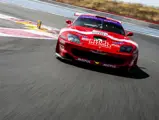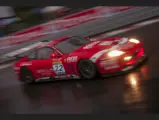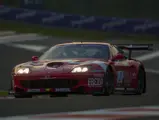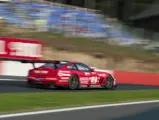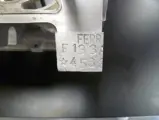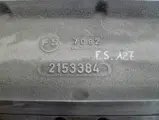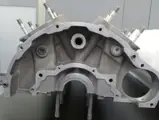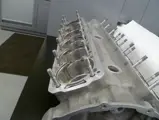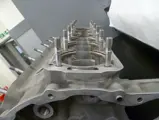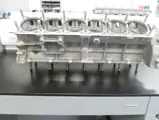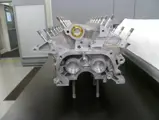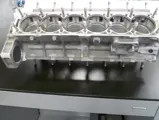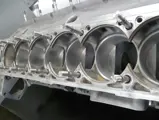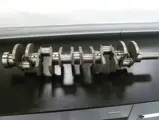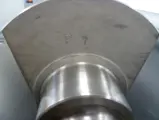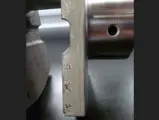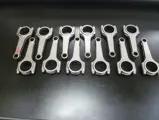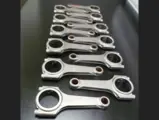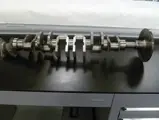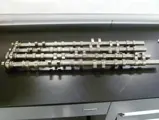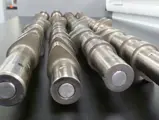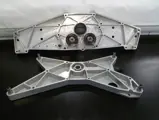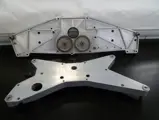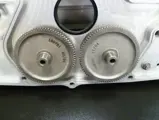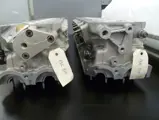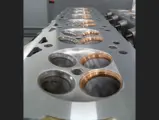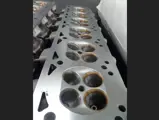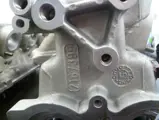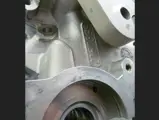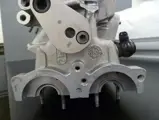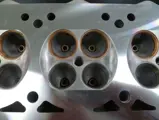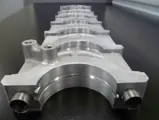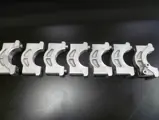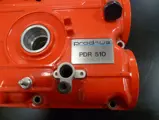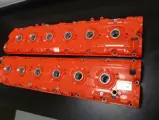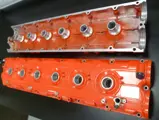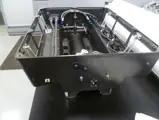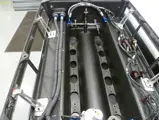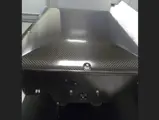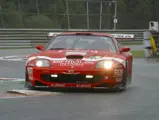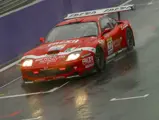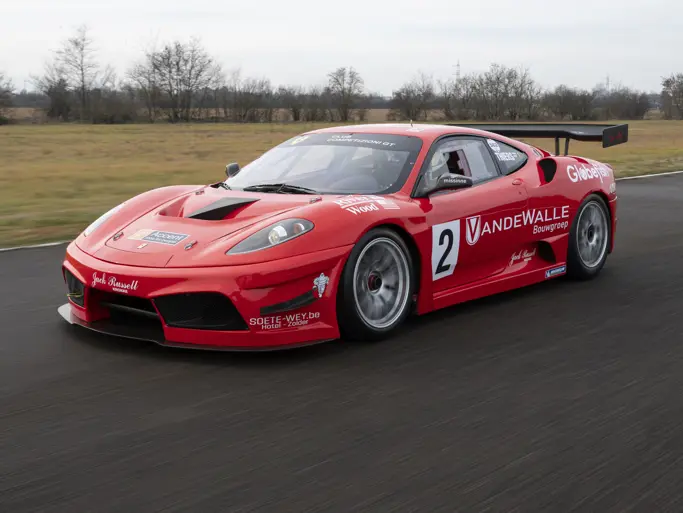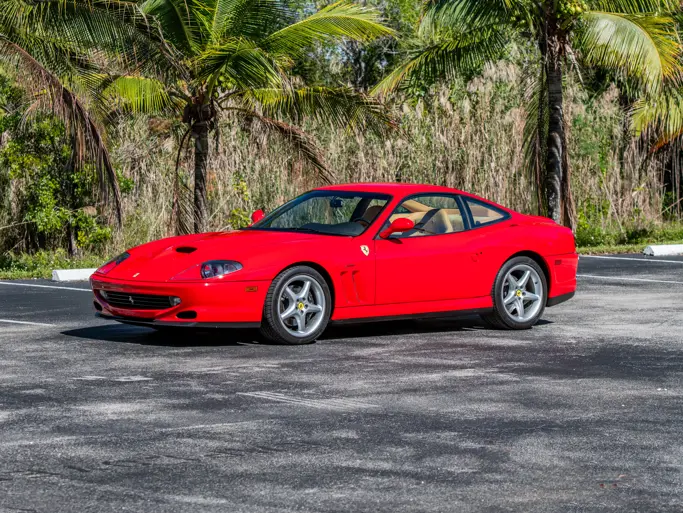
2001 Ferrari 550 GT1 Prodrive
{{lr.item.text}}
$4,290,000 USD | Sold
{{bidding.lot.reserveStatusFormatted}}
- The second of twelve 550 GT1 chassis commissioned in 2001 to Prodrive by Care Racing Development for their race program
- Winner of the 2004 FIA GT Championship, driven by Luca Cappellari and Fabrizio Gollin
- Second in the 2003 FIA GT and third in the 2005 Italian GT Championships
- Overall winner of the 2004 Spa 24 Hours, driven by Gollin/ Cappellari/ Bryner/ Calderari
- The last V-12 engined Ferrari to win a 24-hour race overall
- Supplied together with FIA GT1 and Automobile Club de L’Ouest GTSTechnical Passports.
- Accompanied by full race log and mileage charts, maintained by CRD/Prodrive.
- Fully rebuilt to historic race-ready condition
- Ferrari Classiche Certified as “Veicoli da Competizione”.
The history of long-distance racing has been a long and turbulent one, characterised by a frequently acrimonious relationship between the rule makers, car manufacturers and their designated teams. Periodically however, the prevailing ruleset, eligible cars and level of stakeholder consensus is such that a golden age emerges. The FIA GT Championship from 1999-2009 was one such era.
Although the championship got off to a faltering start in 1997 and 1998, the 1999 season saw the previous generation of manufacturer-backed homologation specials outlawed, with the old GT2 class - hitherto populated by the likes of the Chrysler Viper, Porsche 911 GT2 and Marcos LM600 - becoming the new top flight GT category. Manufacturer involvement - with its attendant unsustainable budgets - was banned, with production-based, privately entered cars representing the core of the revamped championship. Races would be standardised at 500 kilometres in length and a new second tier N-GT class introduced for cars such as the Porsche 911 GT3 and Ferrari 360 Modena N-GT.
In 2000, Frederic Dor’s Care Racing Development concern commissioned the British Prodrive Group to develop a racing version of the Ferrari 550 Maranello, with the intention of competing in the FIA GT Championship, the American Le Mans Series and Le Mans itself. The car was enlarged from 5.5 to 6.0-liters in capacity, and the standard gearbox replaced by a six-speed sequential Xtrac unit. Lightened by some 550 kilograms relative to the road car, the suspension was also considerably reworked and former McLaren F1 designer Peter Stevens heavily revised the car’s bodywork and aerodynamics. Well-funded, brilliantly conceived and immaculately executed, the programme was an unqualified success; the cars taking no less than 50 overall or class victories in international events over the next five years, including a coveted Le Mans GT class win in 2003, and overall victory in the Spa 24 hours race in 2004.
This particular chassis, serial number CRD #02/2001, is the second of twelve Ferrari 550 GT1 program commissioned by Care Racing Development to Prodrive, and is arguably one of the most illustrious of them all. In a competitive career spanning more five years, it competed in 49 races, taking 15 pole positions, 14 outright race wins and finishing on the podium some 29 times. Incredibly, the car only failed to finish on six separate occasions, mainly due to mechanical failure, and on an on-track accident
The car made its race debut entered by Prodrive at the 2001 Petit Le Mans, the final round of that year’s ALMS. Although in only its fourth year, the race had already become very much the fourth Sports Car “Classic” after Le Mans, Daytona and Sebring, attracting significant manufacturer support in both the Sports Prototype and GT classes. Entered by Prodrive themselves and driven by Peter Kox, Mark Duez and Rickard Rydell, the car qualified fifth in the GTS class before retiring in the race with an oil leak.
The car remained Stateside that winter and was entered in the 50th edition of the Sebring 12 Hours in March 2002. On this occasion, Rydell was joined by Alain Menu and Formula One refugee Tomas Enge, the car showing promising signs by qualifying fifth in the GTS class behind the pacesetting factory-entered Chevrolet Corvettes and two privateer Dodge Vipers. The team endured a troubled race to finish 30th overall and sixth in the GTS class, although securing the fastest GTS race lap by some distance gave cause for much optimism.
After Sebring, CRD #02 was assigned to the BMS Scuderia Italia team owned by Italian steel magnate (and long-term Ferrari 250 GTO owner) Giuseppe Lucchini. Entered in that year’s FIA GT1 Championship, the driver pairing of former Grand Prix driver Jean-Denis Deletraz and Andrea Piccini would go on to take four outright wins with the car at Jarama, Anderstorp, Oschersleben and Estoril. However, although the 550 Maranello had clearly been the fastest car of the season, the superior consistency of the Dodge Viper and Lister Storm would relegate Deletraz/Piccini to fourth in the final standings for the championship.
BMS Scuderia Italia retained CRD #02 for the 2003 FIA GT1 Championship season, albeit with a new driver pairing of Fabrizio Gollin and Luca Cappellari. With backgrounds in the contrasting disciplines of International Formula 3000 and Italian Hillclimbing respectively, Gollin rapidly assumed the mantle of fastest driver of the series - although the unassuming Cappellari would prove a more than capable deputy.
With the lead BMS 550 GT1 of Matteo Bobbi and Thomas Biagi steamrollering the opposition to win the first five rounds of the year, the Gollin/Cappellari car was soon on the back foot in championship terms for 2003, in spite of finishing second in the first two rounds at Barcelona and Magny-Cours. However, the season’s highpoint was undoubtedly the Spa 24 Hours, which saw capable Swiss amateurs Lilian Bryner and Enzo Calderari join the car’s regular drivers to take a well-deserved second place overall, and first in class. A further second place at the penultimate round of the series in Estoril and a win at the season-closing Monza round saw Gollin and Cappellari finish only eight points shy of Championship winners Bobbi and Biagi at the end of the year.
In contrast to the previous year, in 2004 it was Gollin and Cappellari - at the wheel of CRD #02 for a second season - who hit the ground running by winning the opening two rounds of the championship at Monza and Valencia. This was followed by a third place at Magny-Cours, a second at Hockenheim and another third at Brno, ensuring that the Italian pairing entered the blue riband Spa 24 Hours in July eight championship points ahead of teammates Matteo Bobbi and Gabriele Gardel in the sister 550 GT1.
At Spa in 2004, Bryner and Calderari joined Gollin and Cappellari once again, with Gollin taking a superb pole position ahead of the Konrad Motorsport Saleen. The two BMS Scuderia Italia 550s were joined on the grid by two of the new GPC Corse-entered 575 GTC models, the latter’s driving roster boosted by the likes of Mika Salo, Karl Wendlinger and Gianni Morbidelli, in addition to two further JMB racing-entered 575 GTCs. Salo’s lead GPC car held a lead of more than a lap with only five hours to go, before a broken rear diffuser cost them over five minutes in the pits handing the lead to BMS Scuderia Italia. A solitary pit lane speeding infringement aside, CRD #02 navigated the race’s myriad pitfalls masterfully, its three amateur pilots driving intelligently and Gollin putting in heroically rapid stints as required. Their discipline was richly rewarded with victory by a lap over the second placed Salo/Peter/Babini/Vosse 575 GTC, in so doing scoring Ferrari’s first outright 24 hour race victory in six years - and only its second since the immortal 330 P4’s victory at Daytona in 1967.
After Spa, Gollin and Cappellari held a comfortable 11.5-point lead in the Championship over Bobbi and Gardel. This was subsequently backed up with a second place at Imola and a further win at Oschersleben, which saw them take the championship with one round remaining.
The 2005 season represented CRD #02’s competitive swansong; BMS Scuderia Italia continuing to run the car albeit in the Italian GT Championship rather than its International counterpart. Driven once again by Cappellari, who was now paired with experienced Sports Prototype racer Angelo Lancelotti, the team took a further three outright wins - at Monza, Magione and Vallelunga - and seven further podium finishes en route to third overall in the Championship.
Since its retirement from competition, CRD 002 has remained in the custody of Care Racing Development. Impeccably presented in its Spa 2004 livery, it is accompanied by FIA and ACO Technical documents and, significantly, by a comprehensive CRD mileage. Furthermore, the car will be accompanied by a previous U.K. V5 first registered in June of 2000. The car has been fully rebuilt and it shall be delivered to its new owner in race-ready condition for the Masters & Peter Auto Historic championships. In addition, further research carried out by RM Sotheby’s and Care Racing Development into the 2004 Spa 24 Hours scrutineering form, which shows that car raced at that event with engine number 510. That engine is presently at the Prodrive factory being overhauled and dyno-tested and will be installed back into the car prior to September 30, 2020.
Ideally suited to European historic racing series such as the burgeoning Masters Endurance Legends and Endurance Racing Legends, as well as for standalone races such as the Classic 24 Hour at Daytona and Le Mans Classic, this 550 GT1 is ready to resume battle against old foes such as the Chevrolet Corvette C5R and C6R, Dodge Viper, Aston Martin DBR9 and Saleen S7R.
The 550 GT1 as a model stands proudly amongst its legendary predecessors, such as the 250 GT Berlinetta Competizione ‘Tour de France’, the 250 GT SWB Berlinetta, the 275 GTB/C, and the 365 GTB/4 Daytona Competizione. Like them, it achieved success in international motor racing at the highest levels, bringing Ferrari back to the podium in endurance racing. This success on the track of course translated into sales in the showroom, showing Ferrari’s valued clients that these cars were truly in a league of their own.
Amazingly, this particular chassis is last of just fourteen Ferraris to ever win an international 24 hour race outright - and the only one to do so, thus far, this century - renders it a very significant car indeed, and one worthy of consideration by any serious Ferrari or competition car collector.
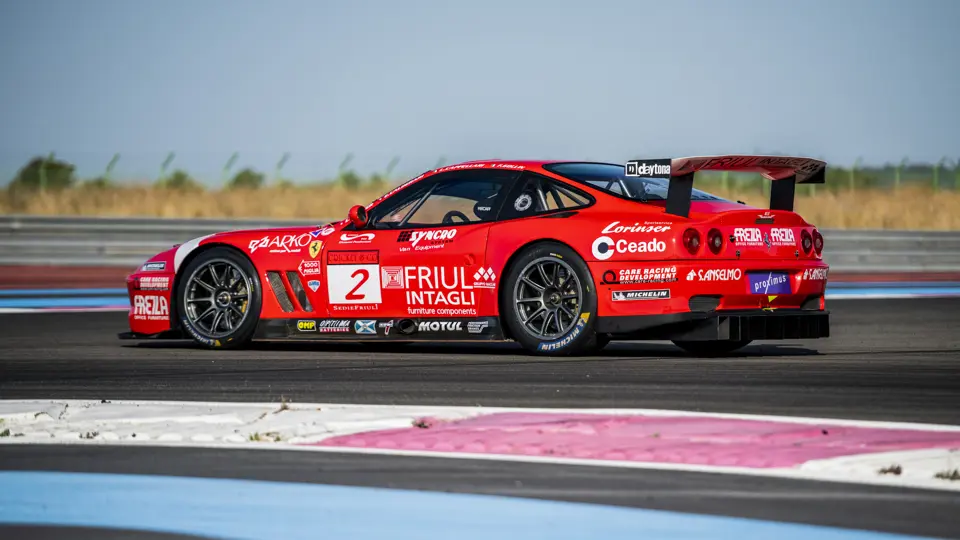
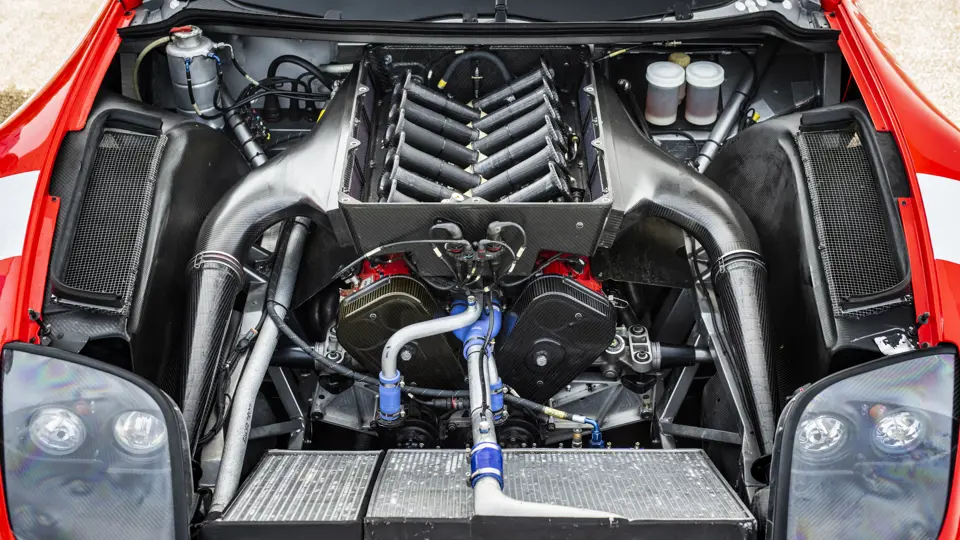


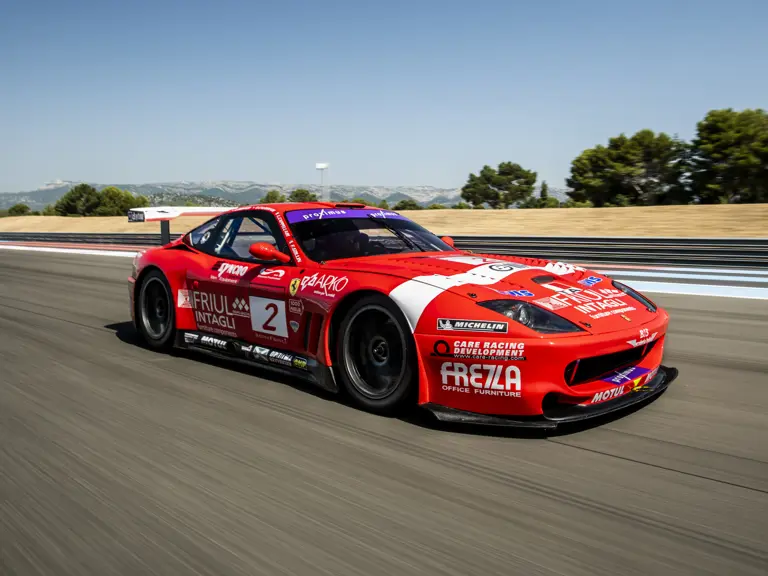
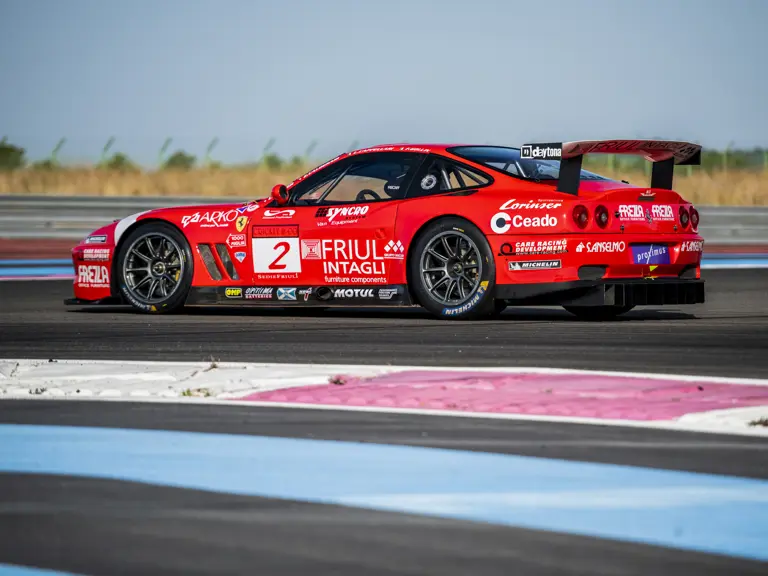
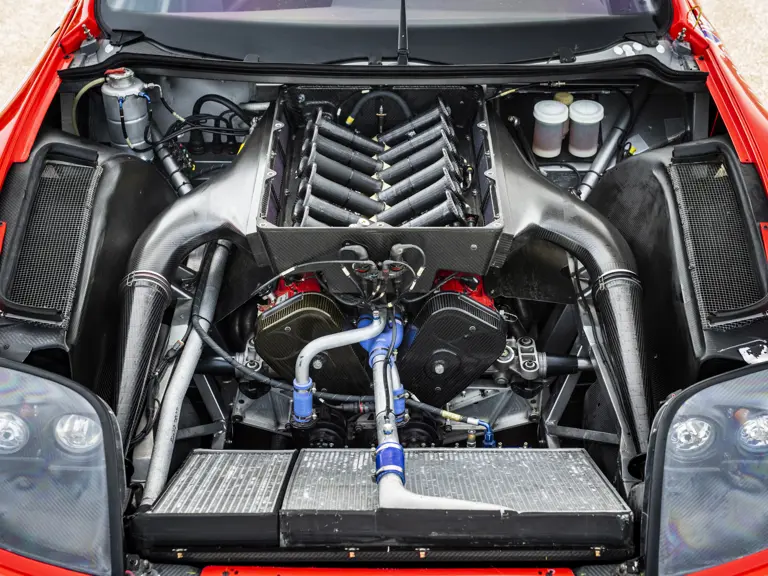
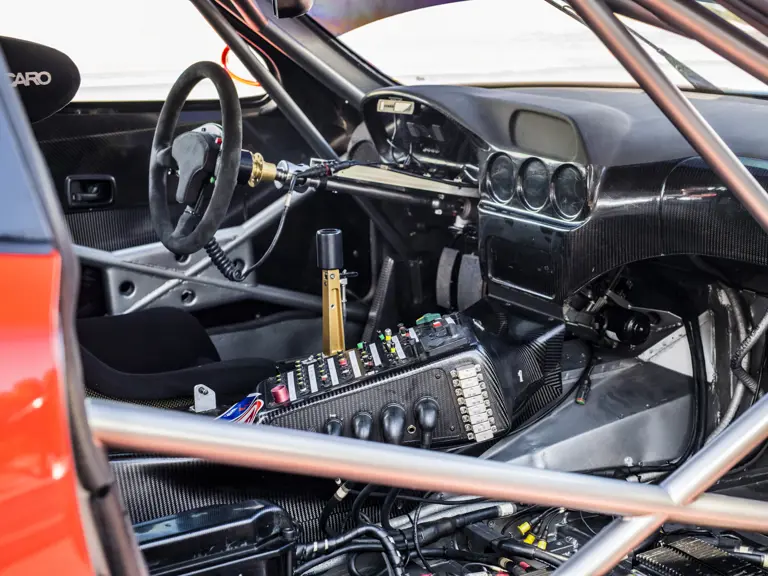
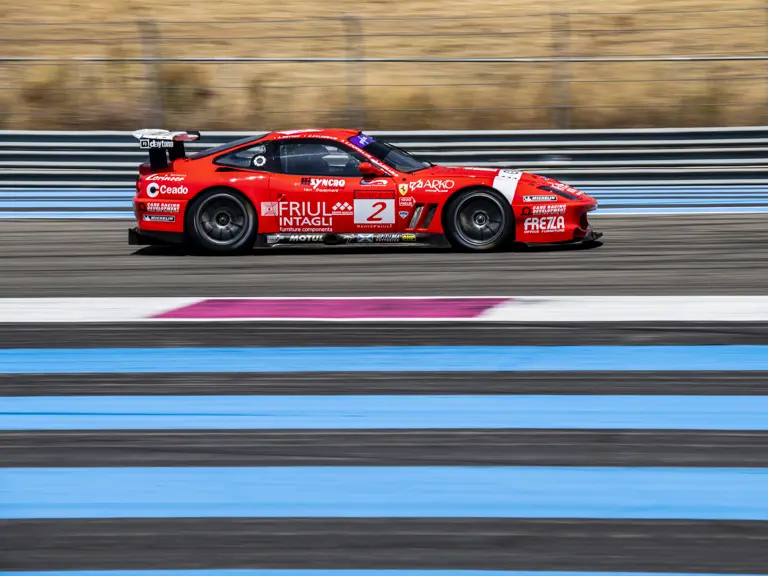
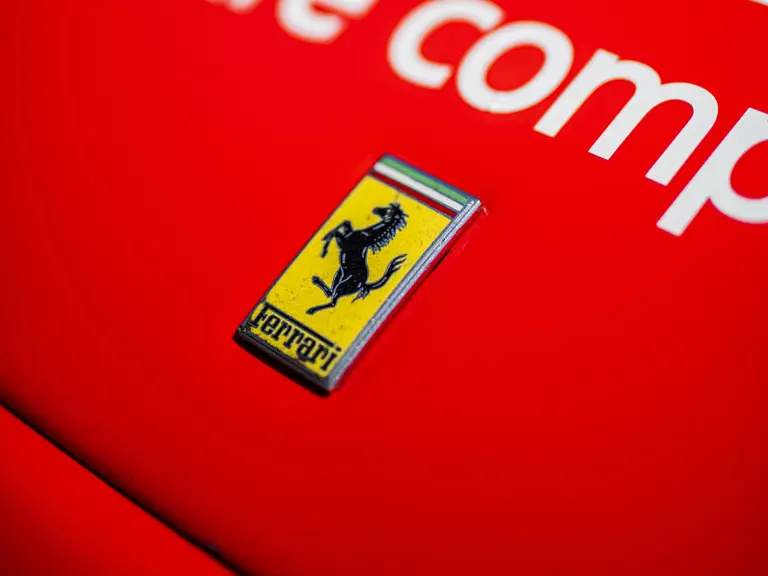
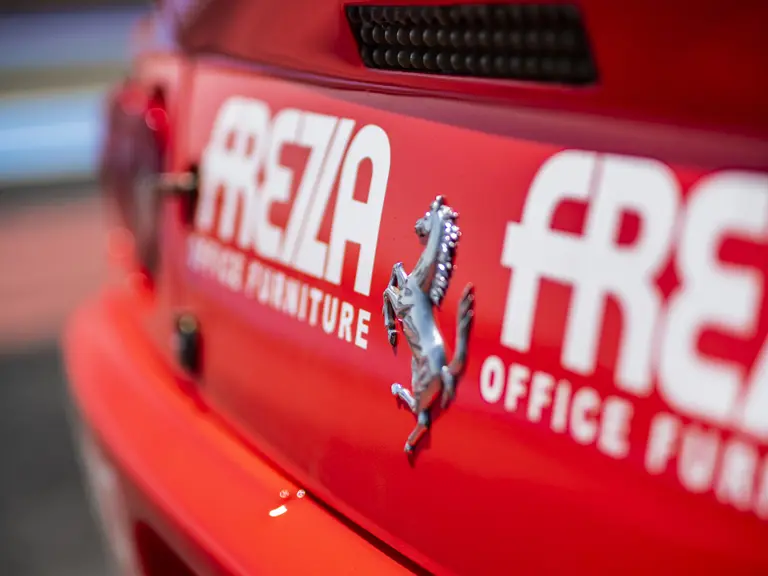
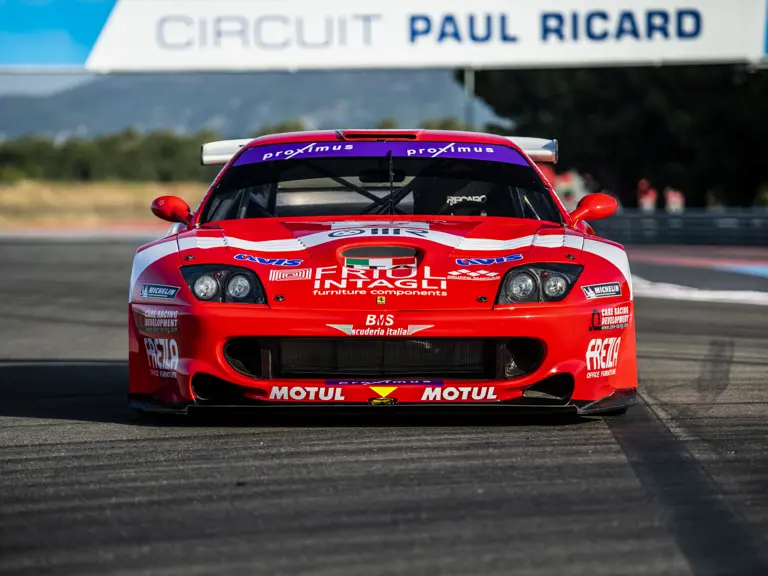
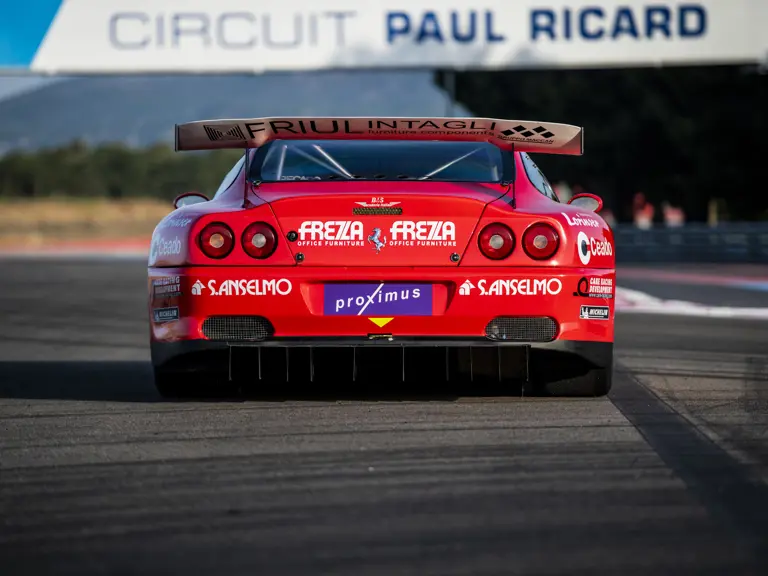
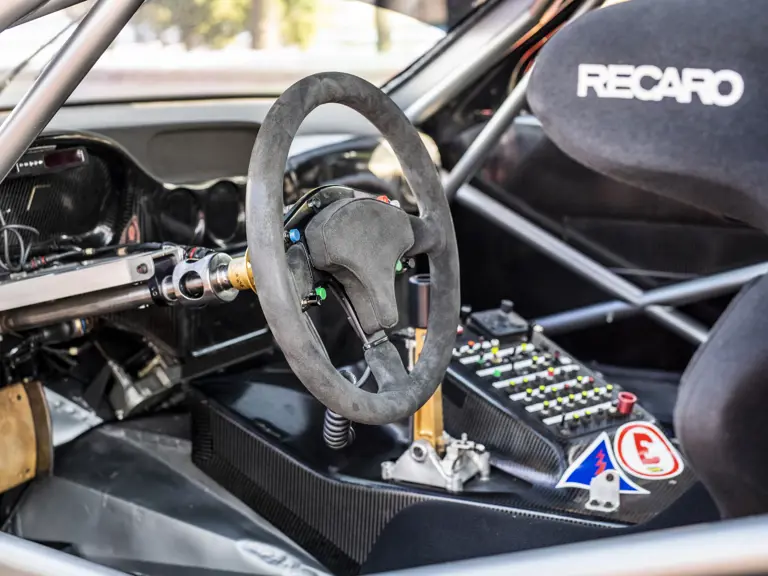
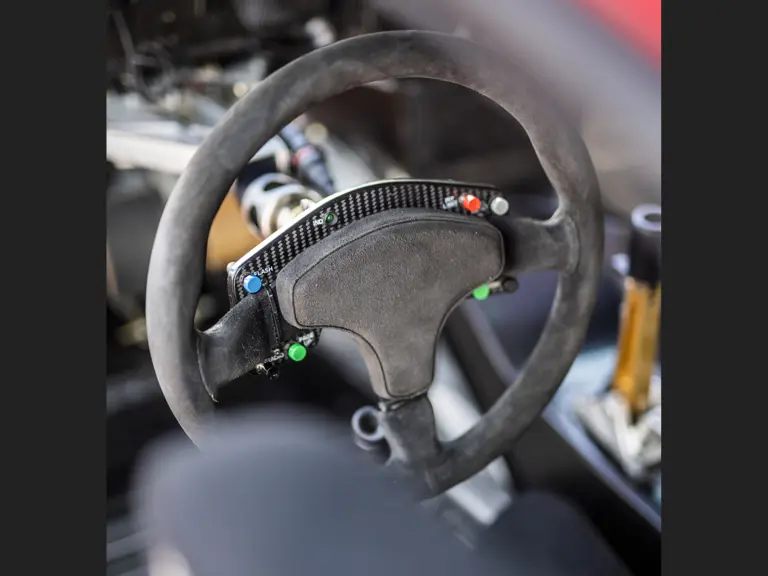
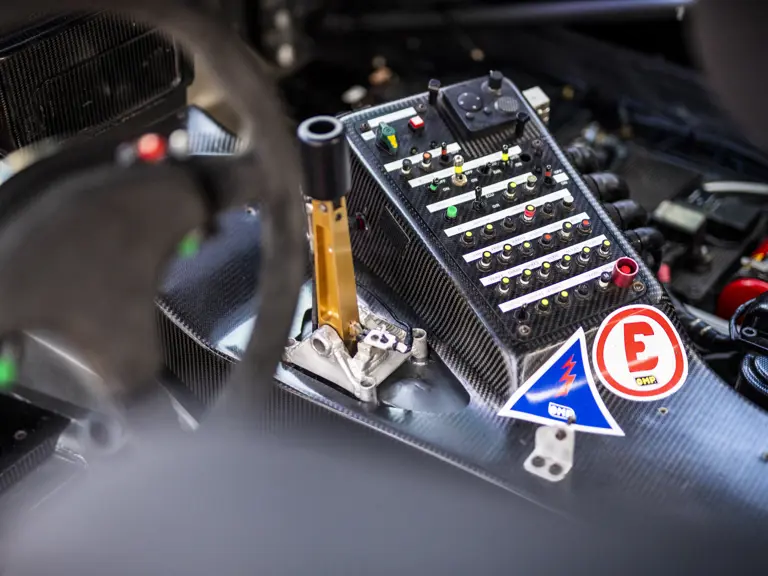
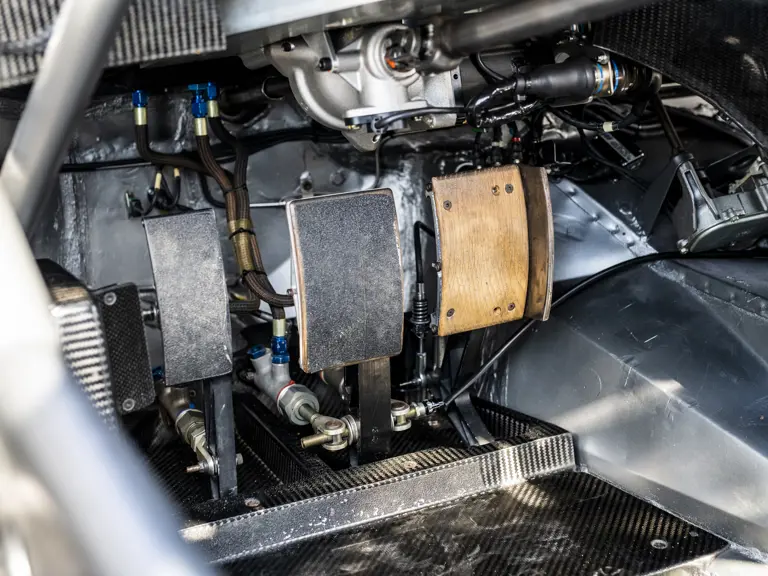
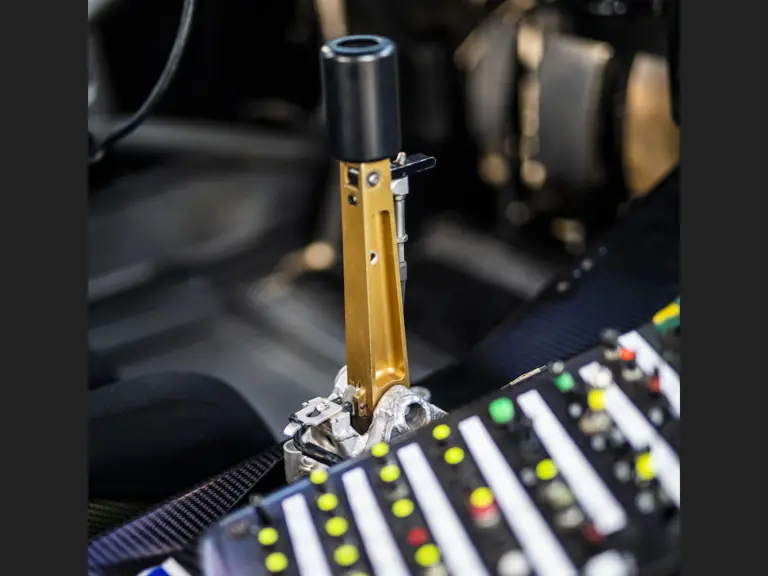
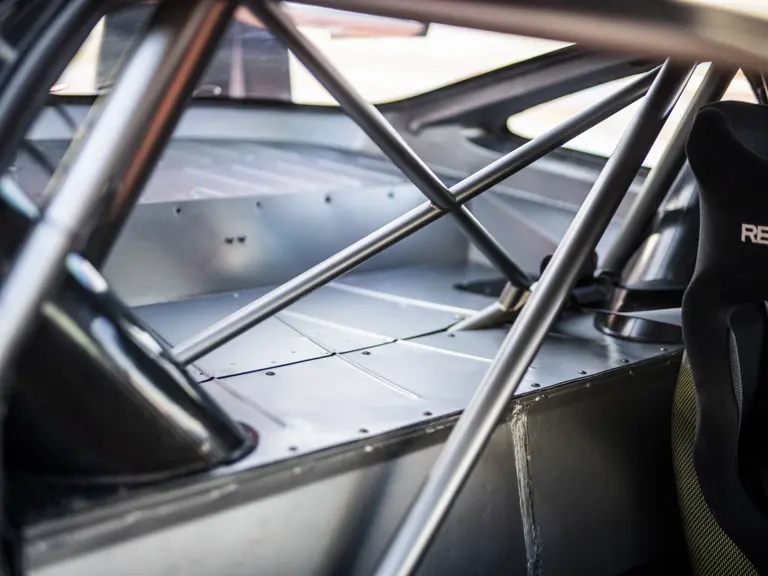
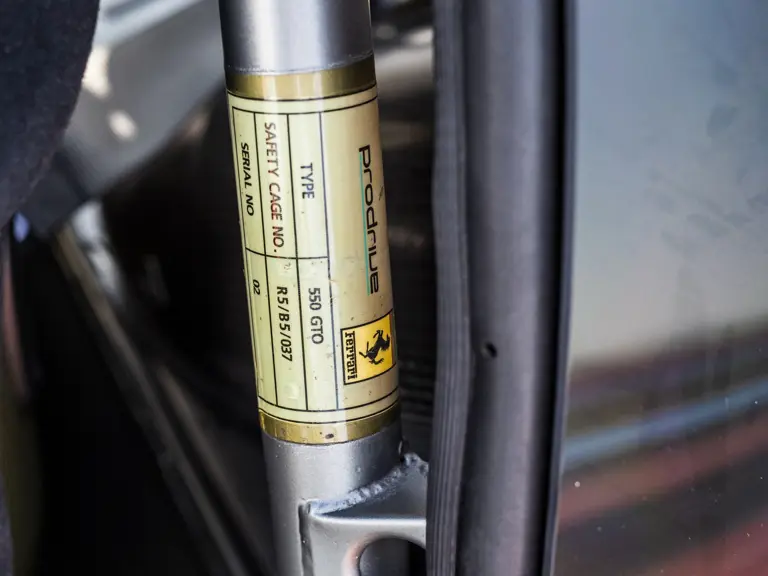
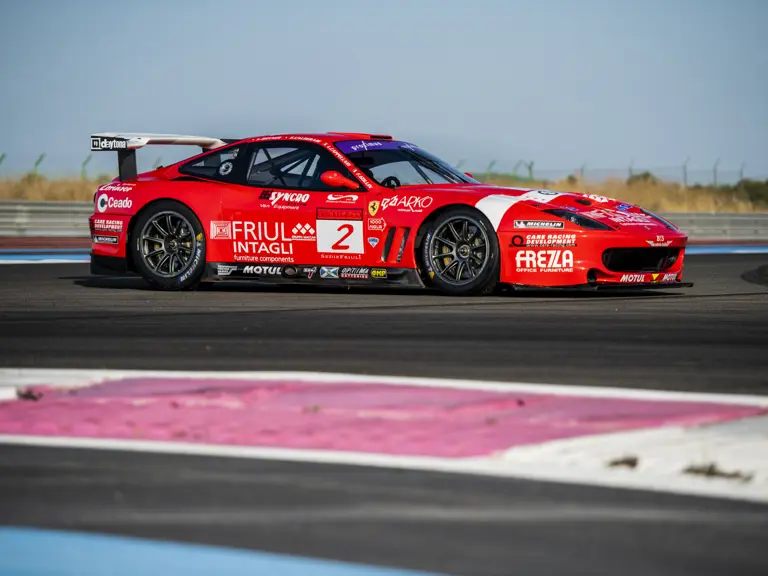
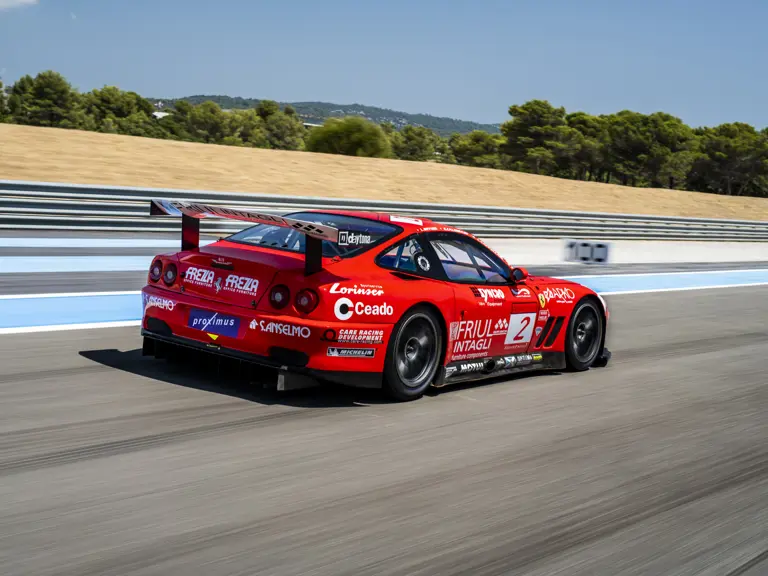
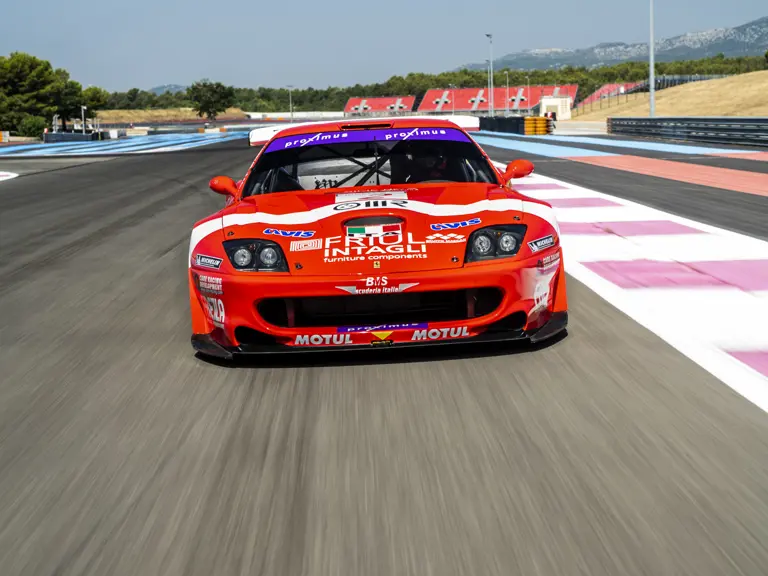
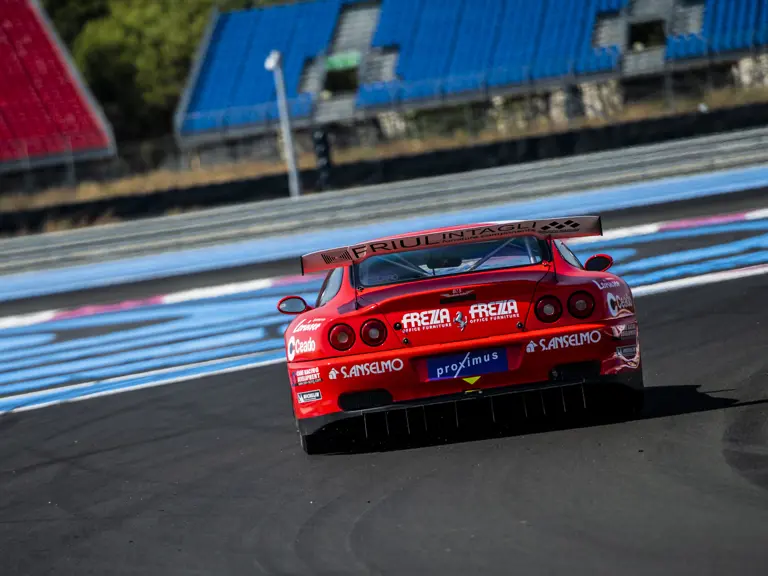
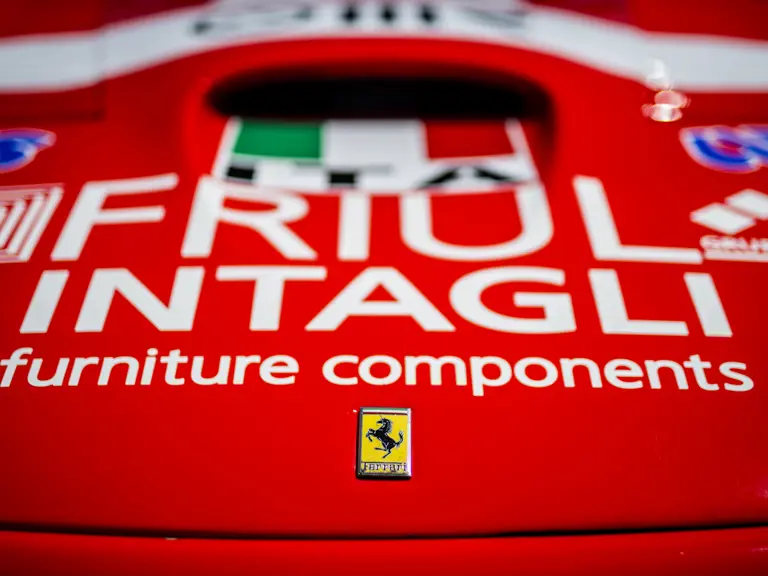
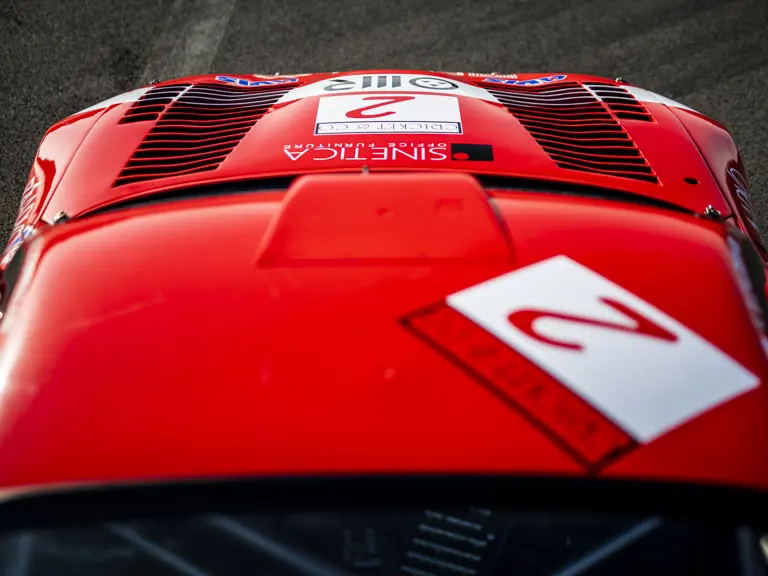
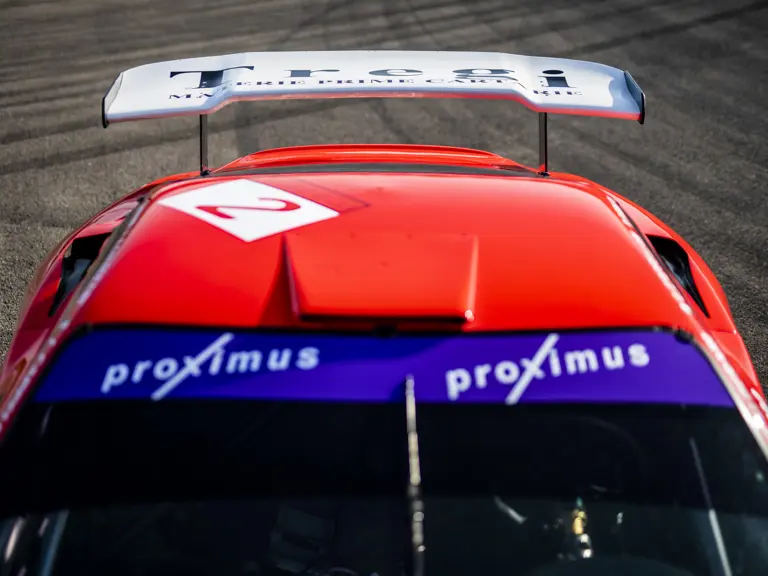
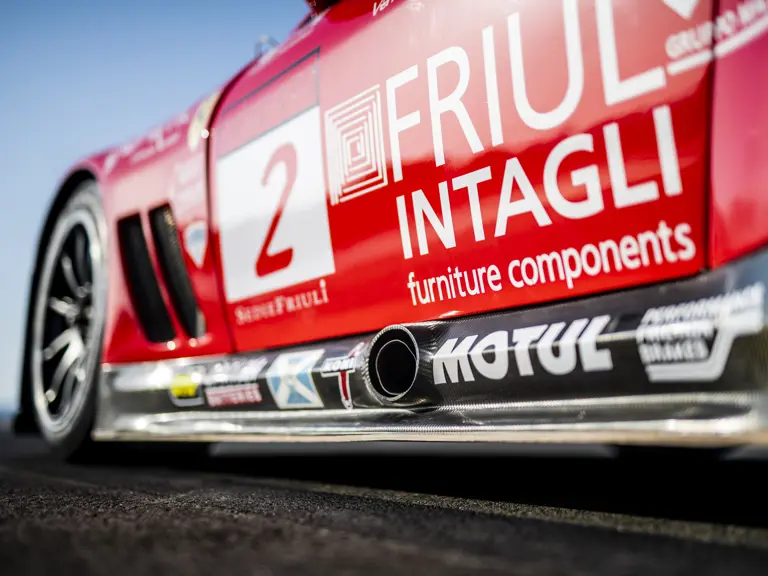
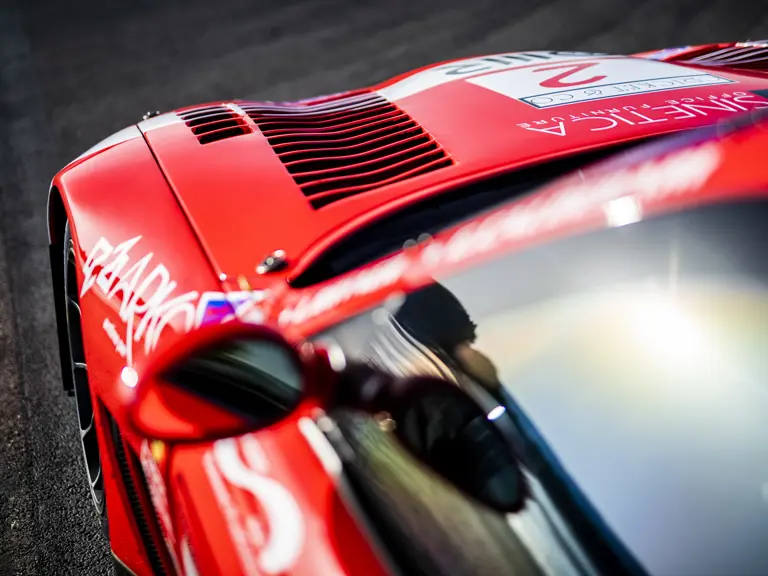
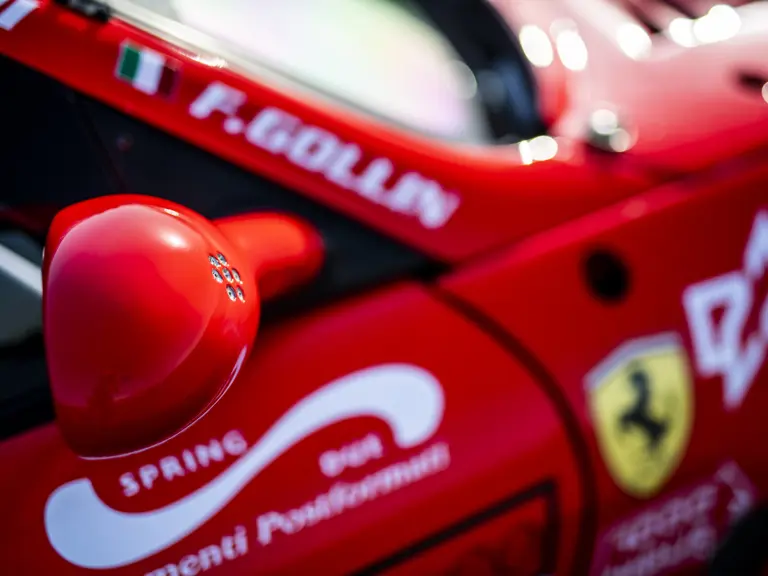
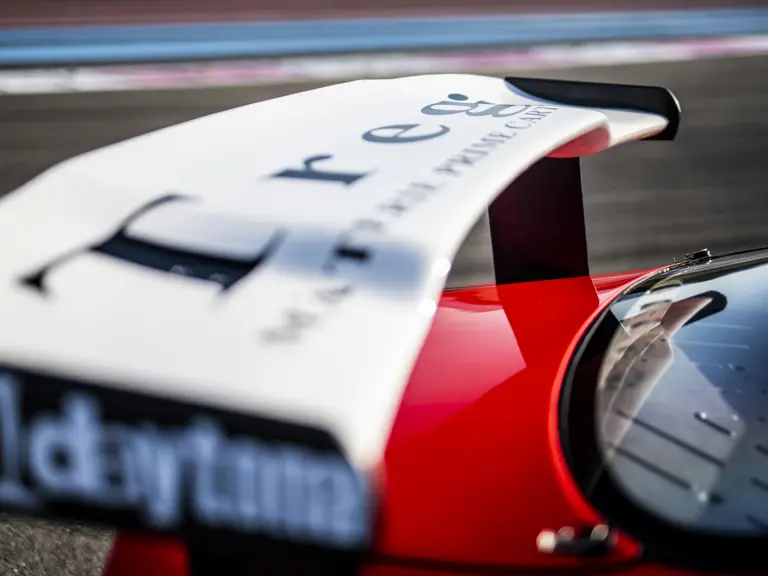
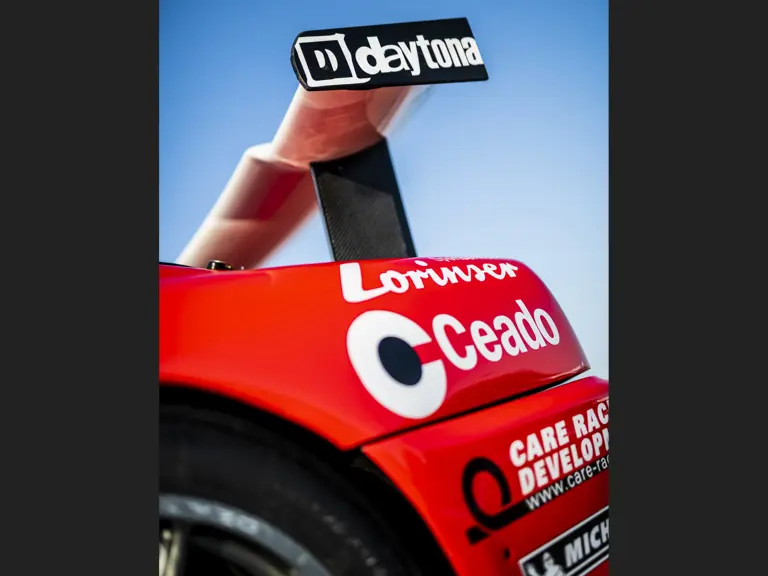

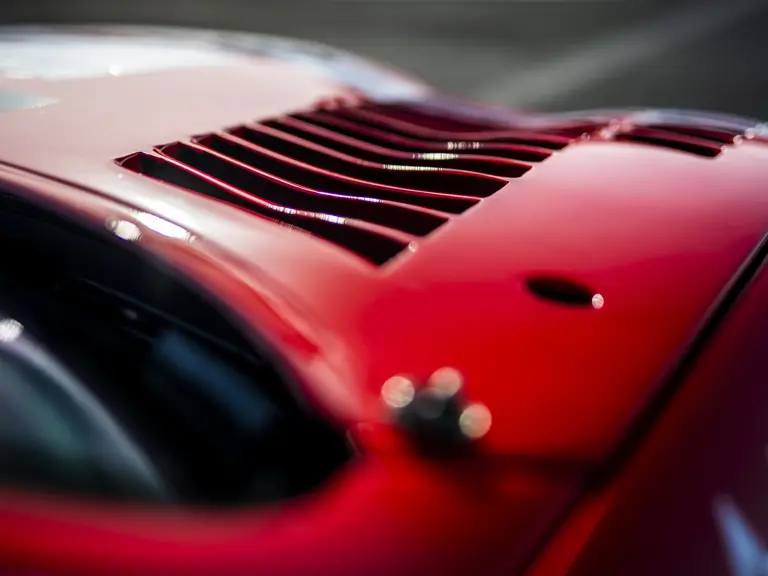
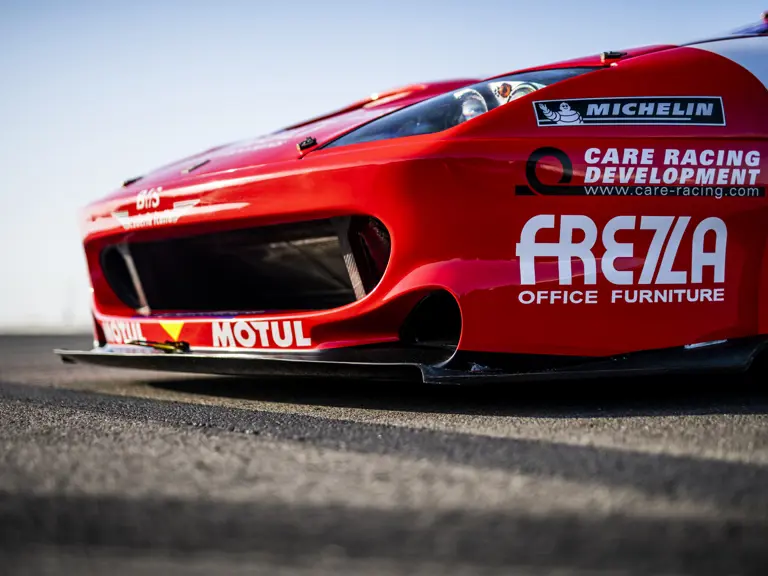
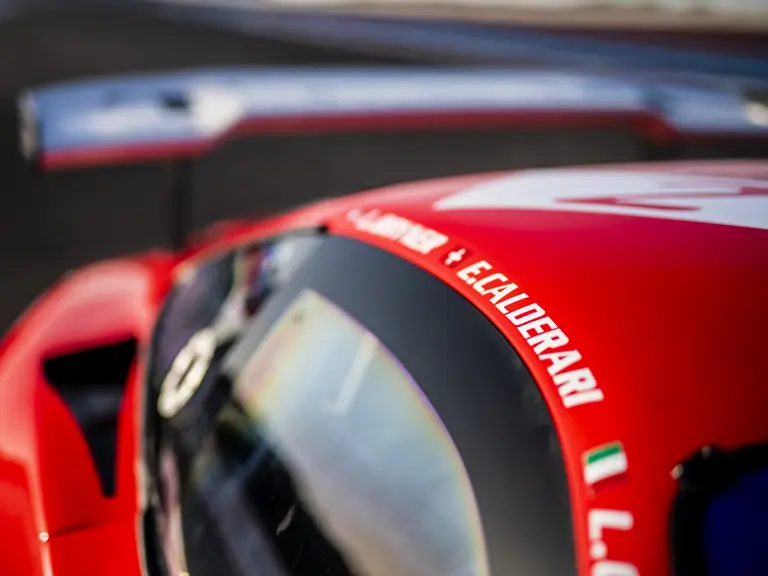
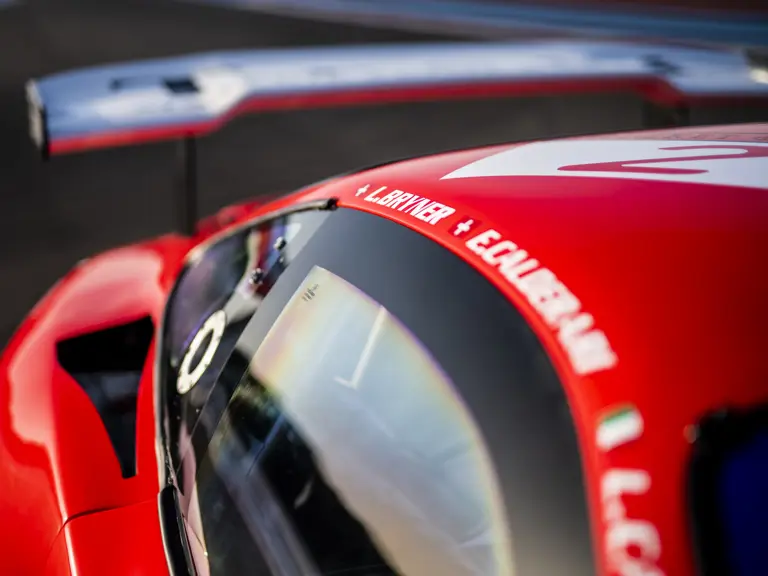
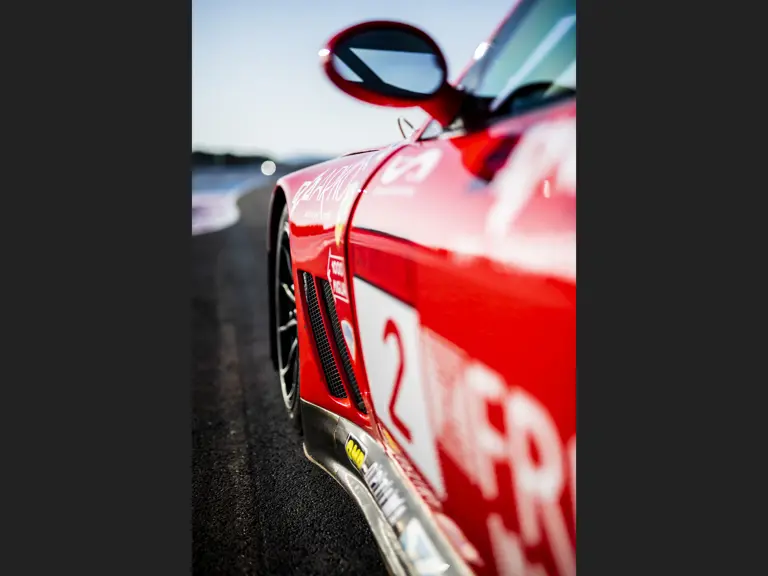
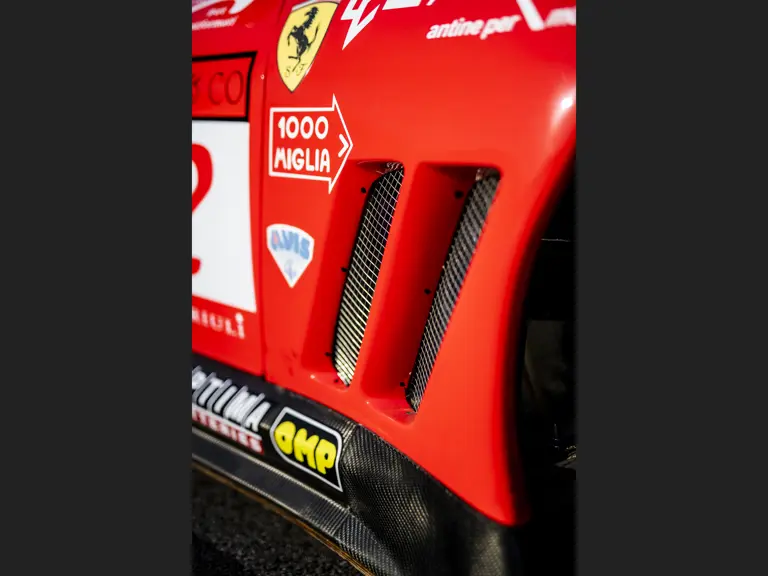
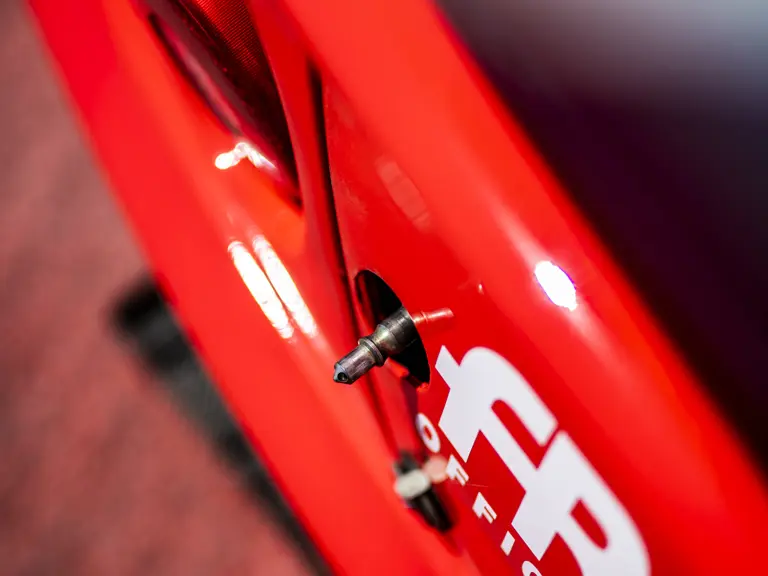
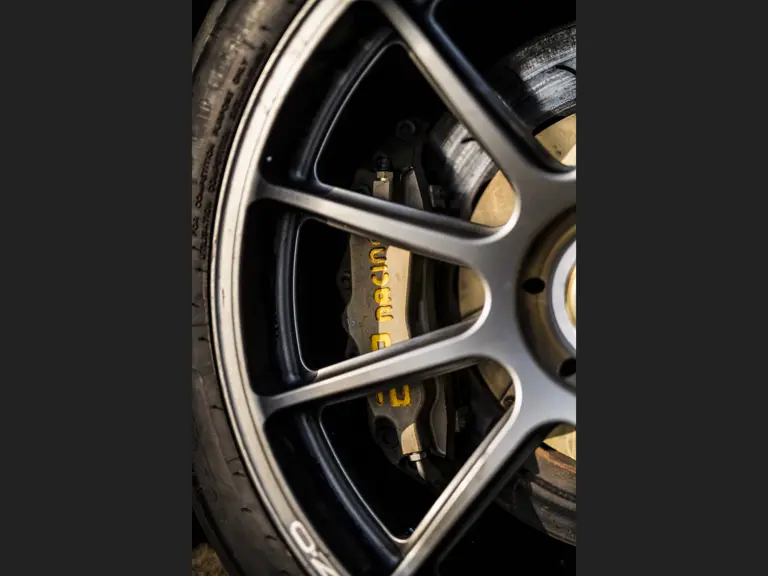
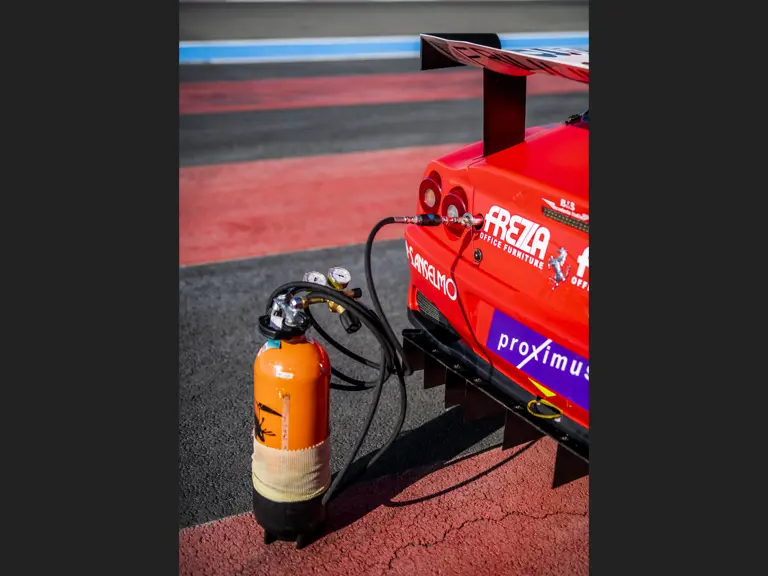
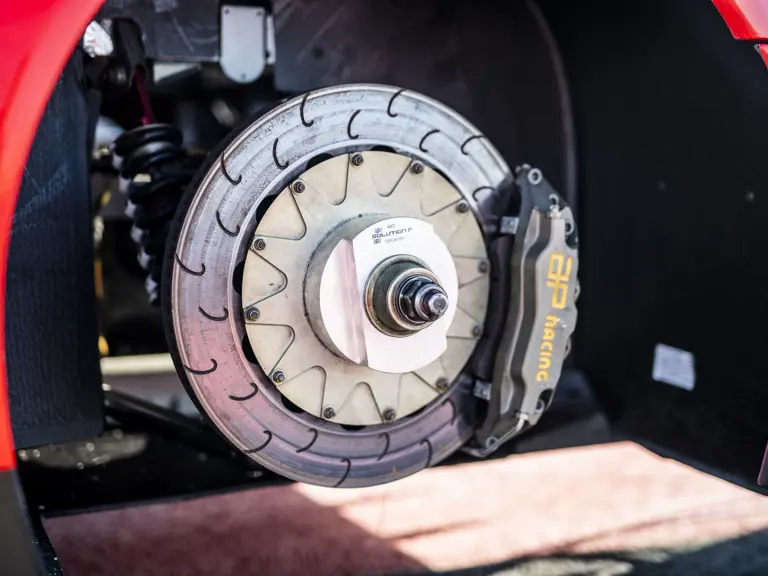
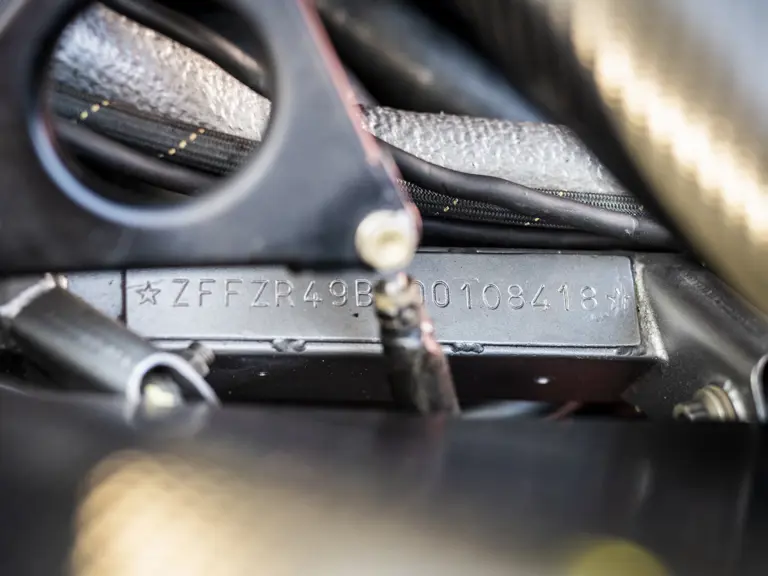
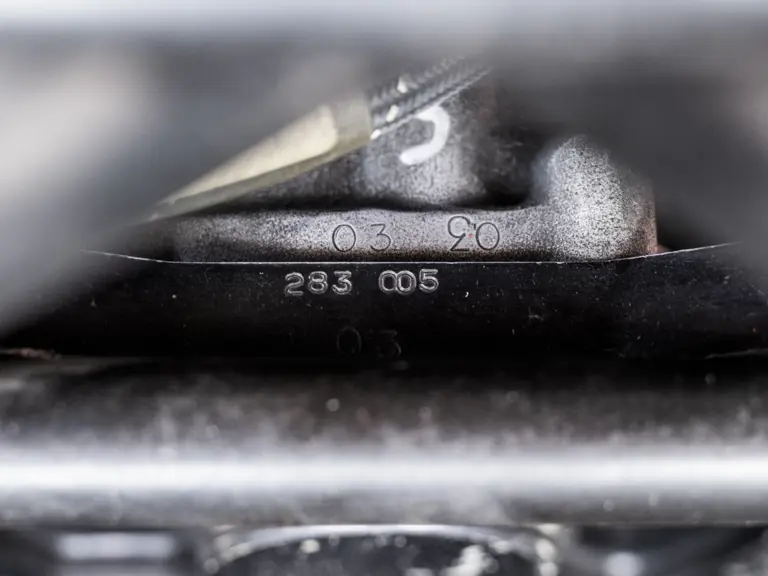
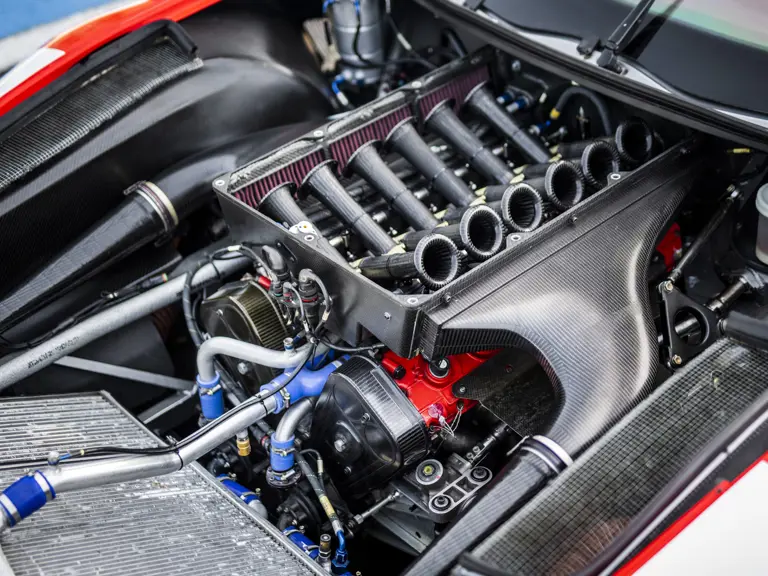

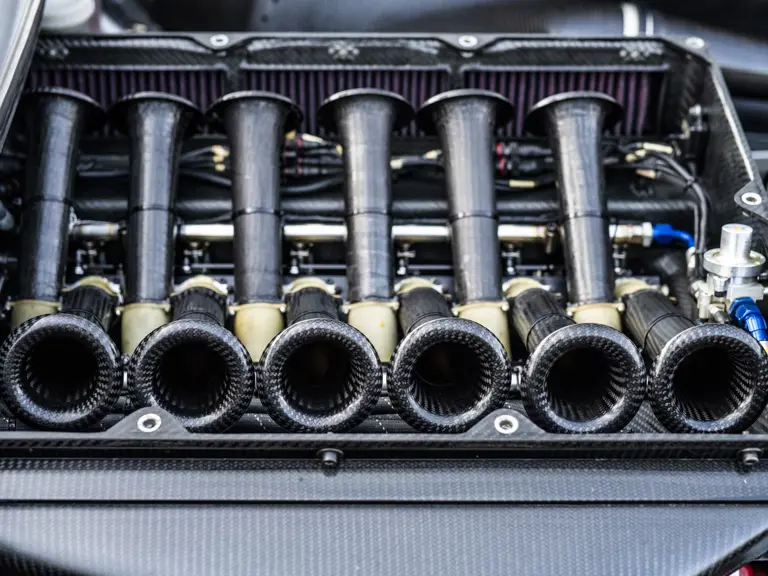
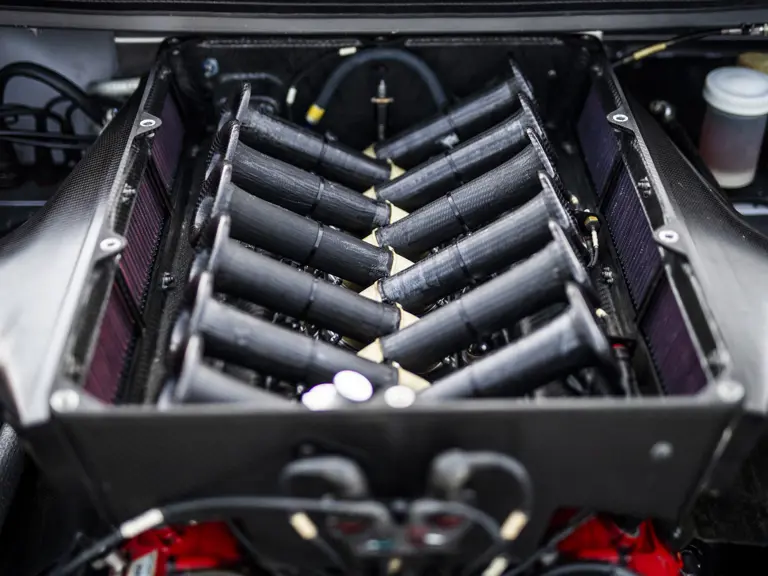
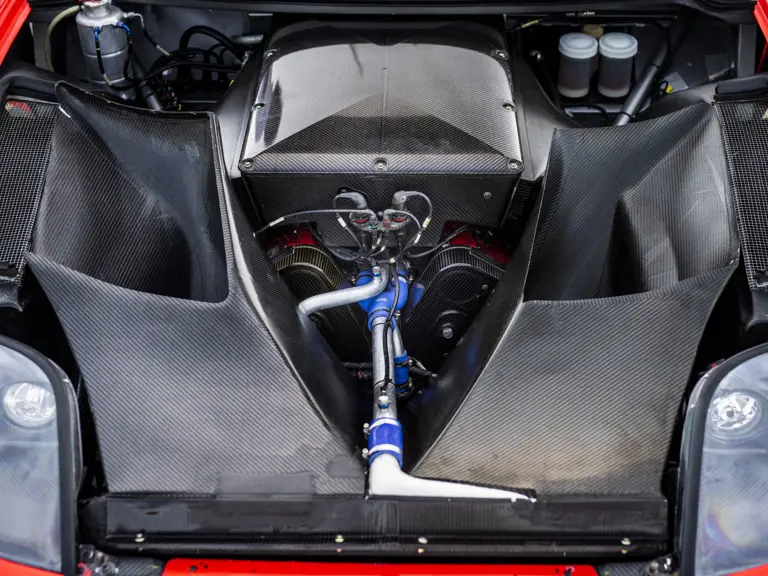
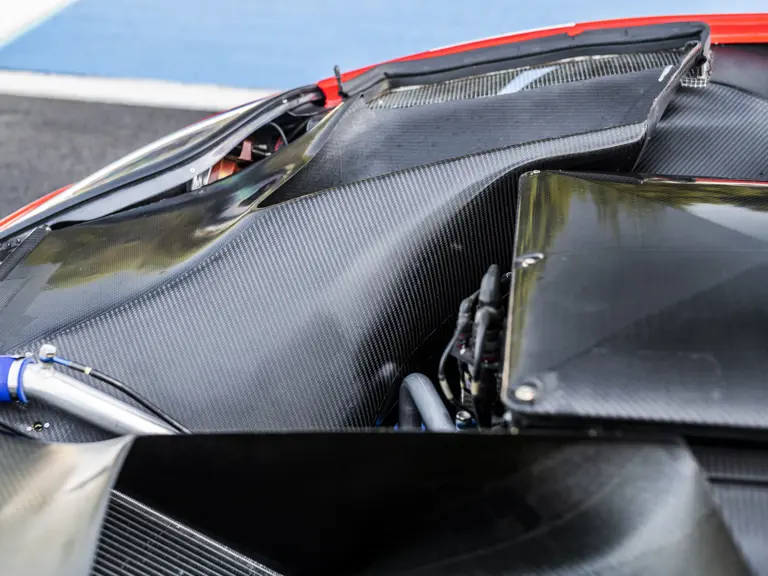
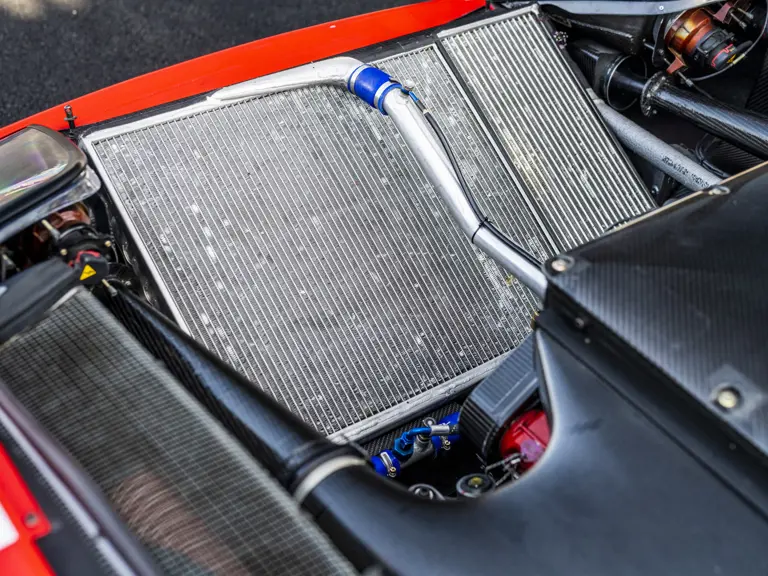
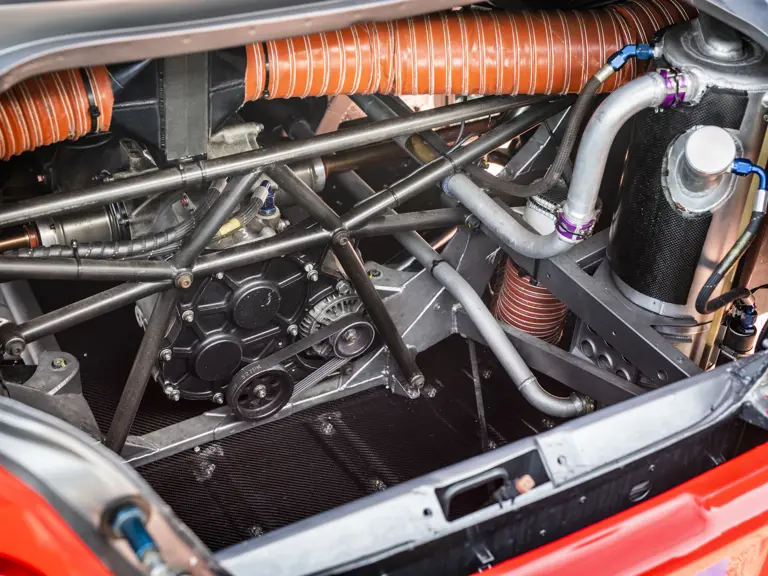
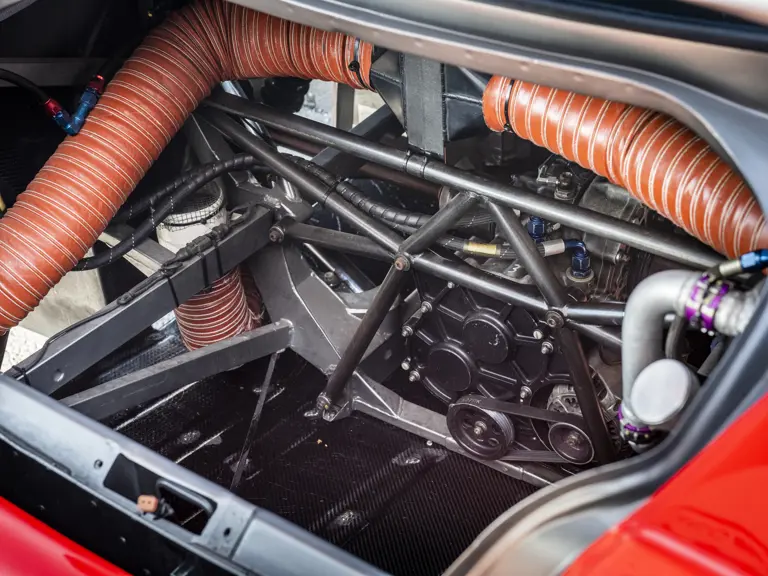
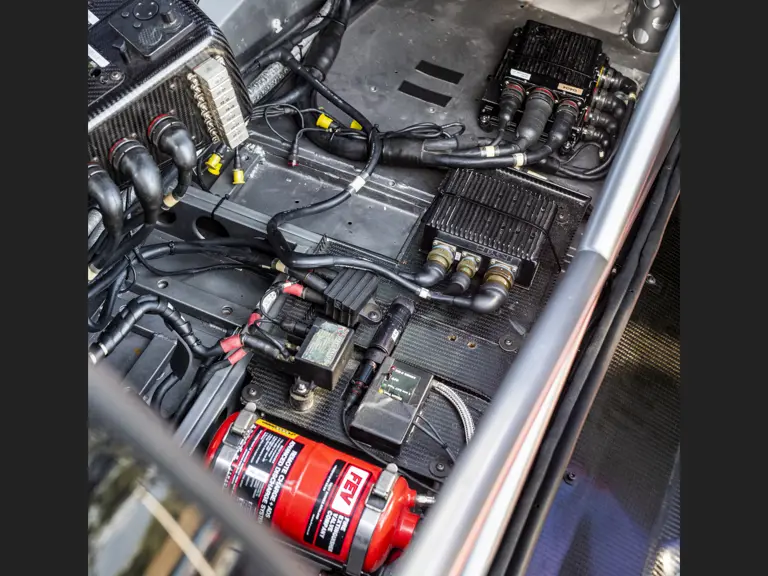
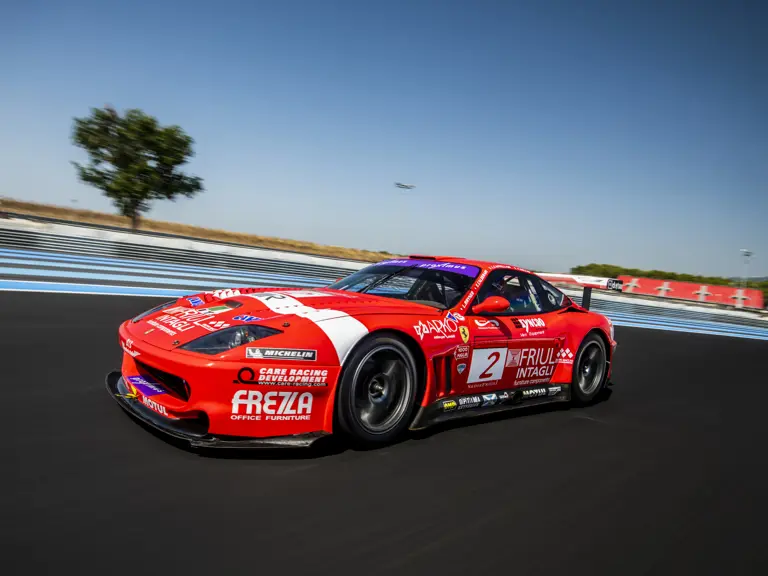
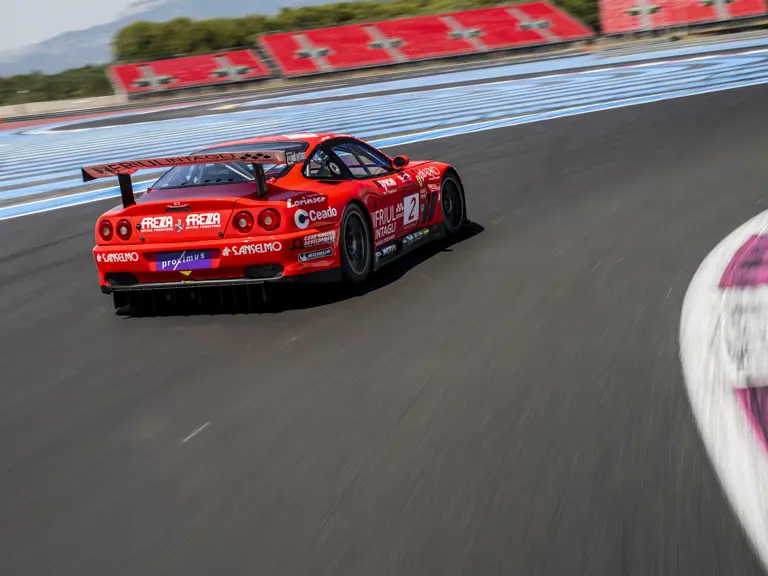
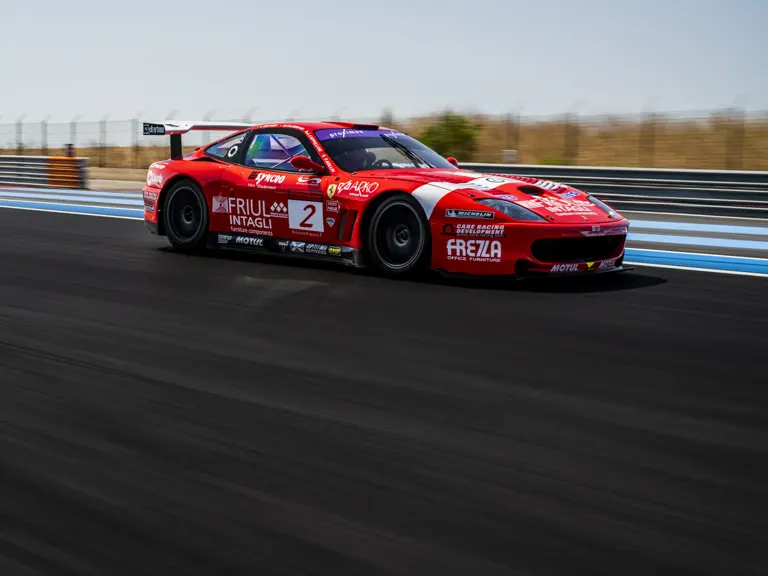
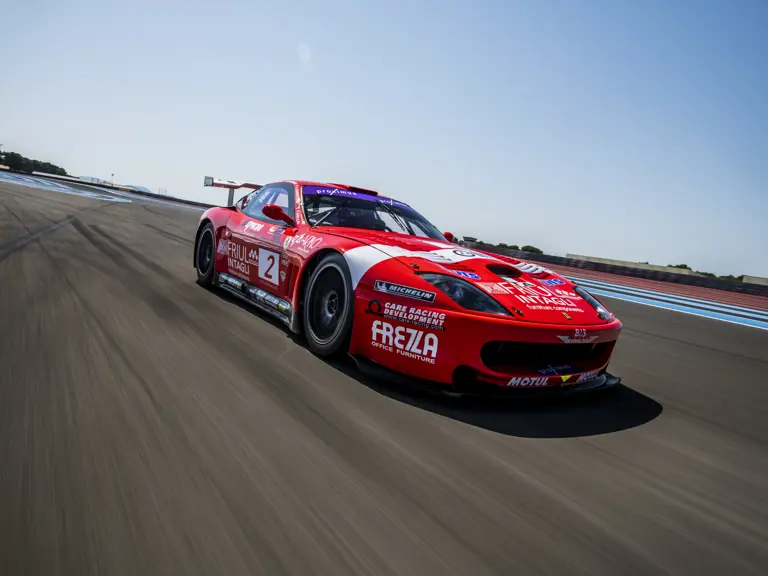
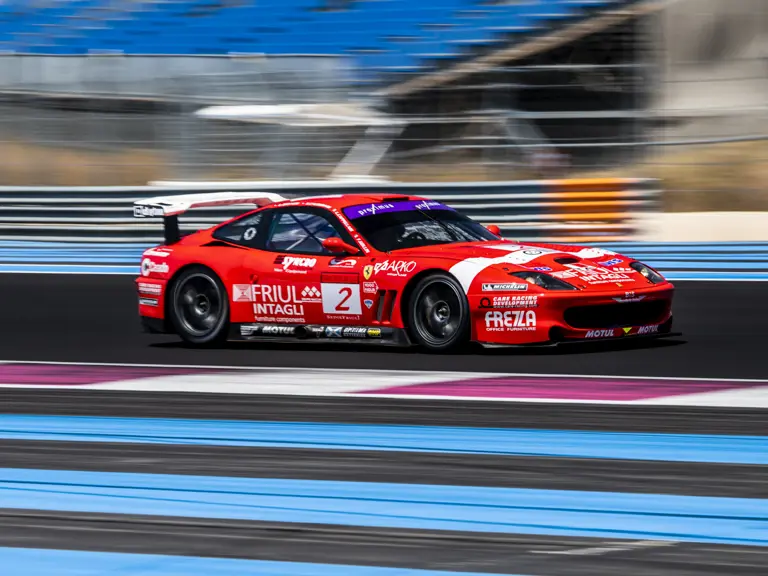
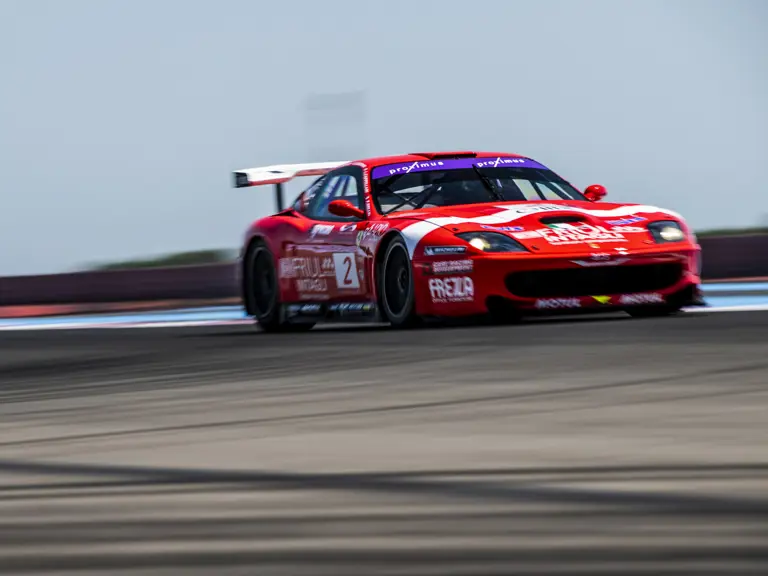
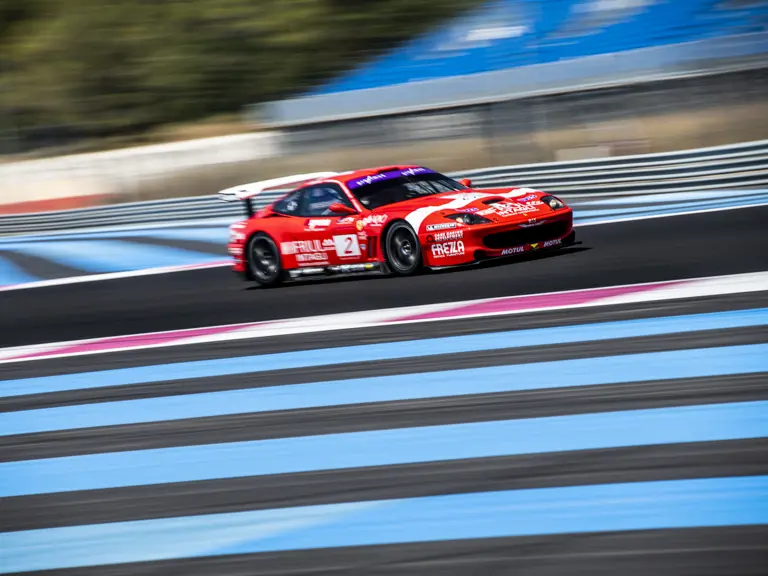
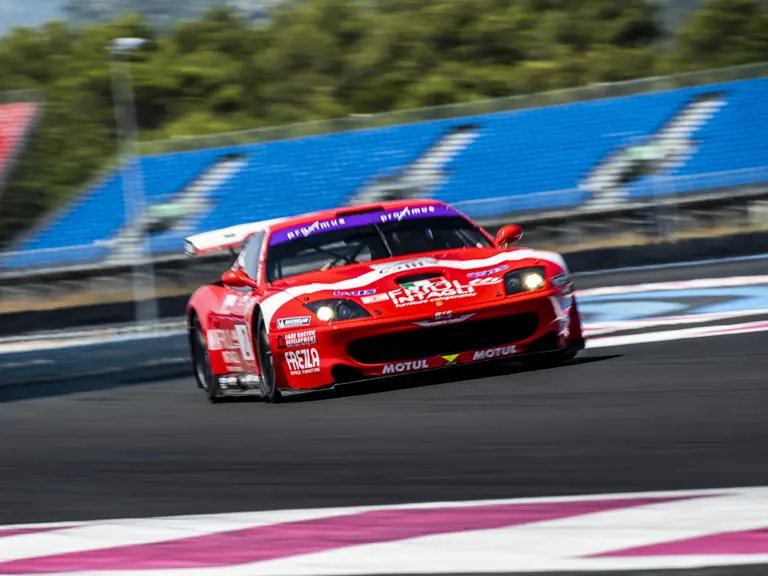
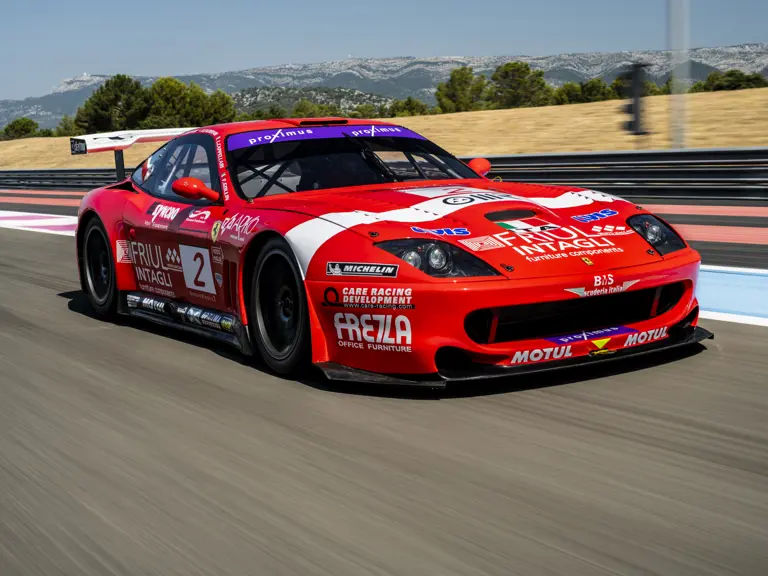
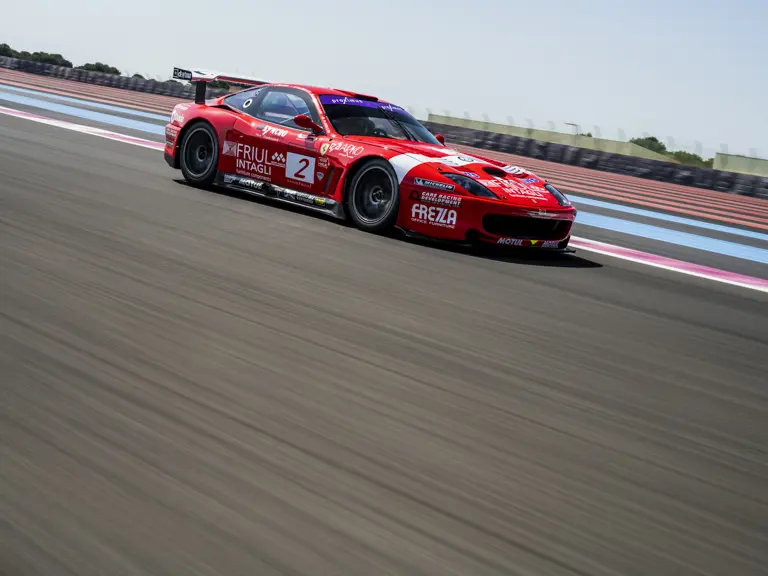
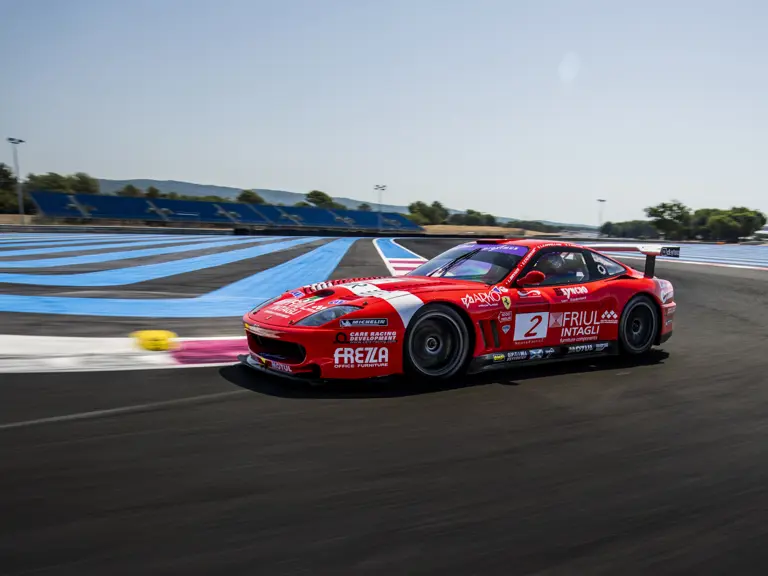
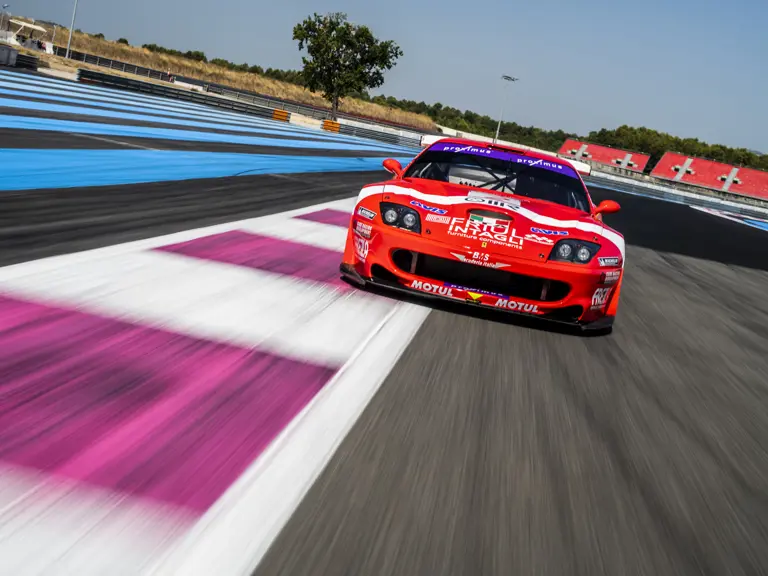
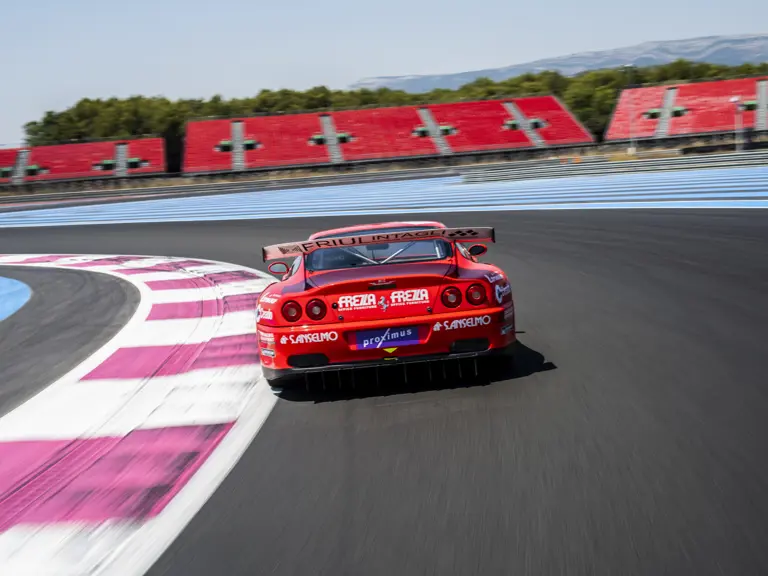
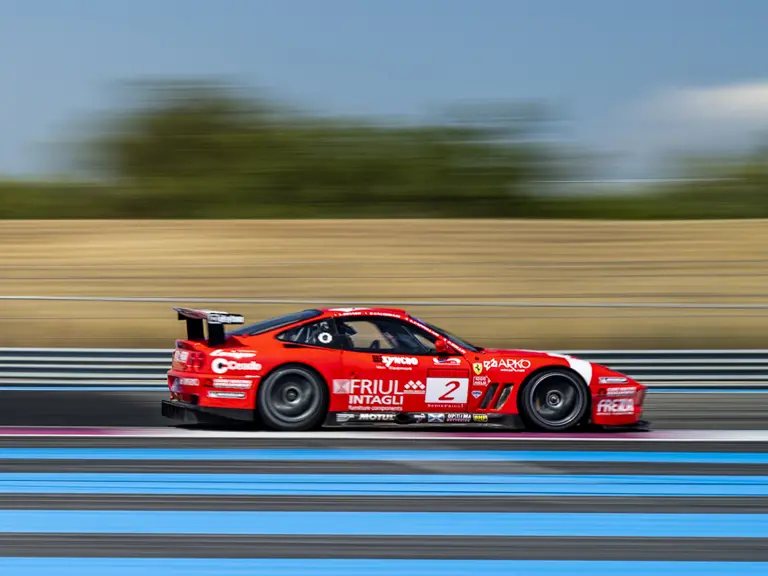
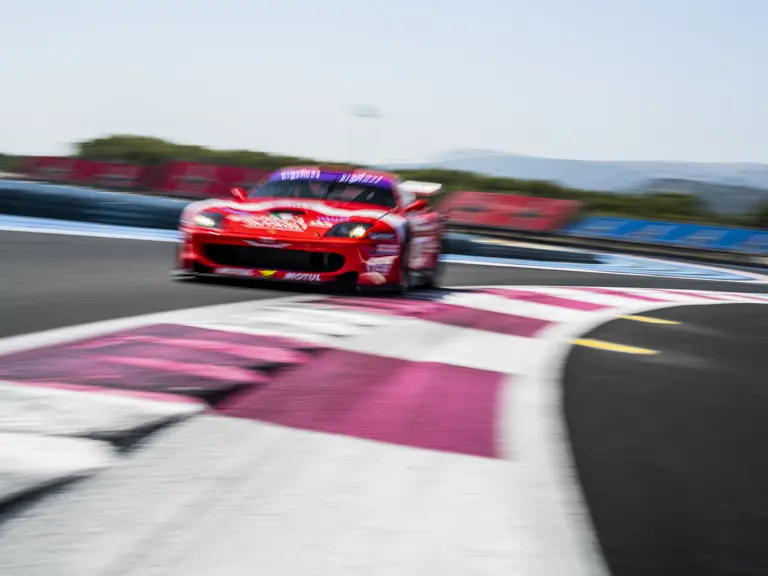
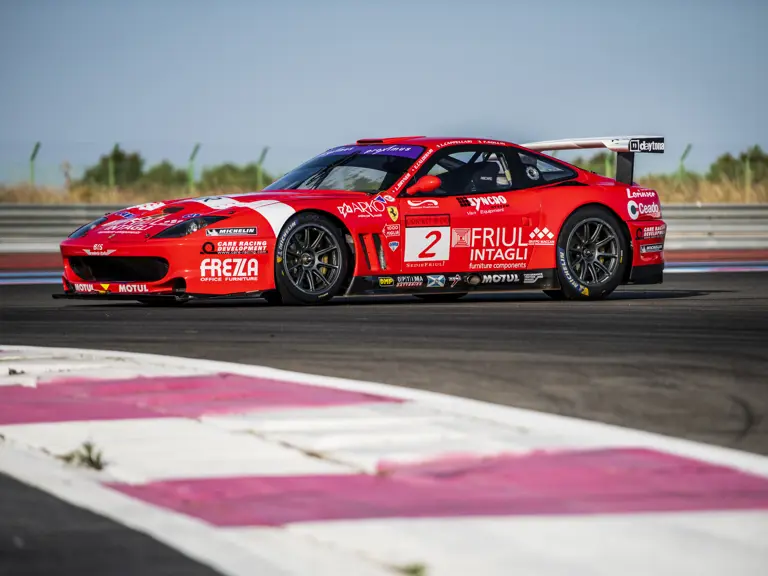
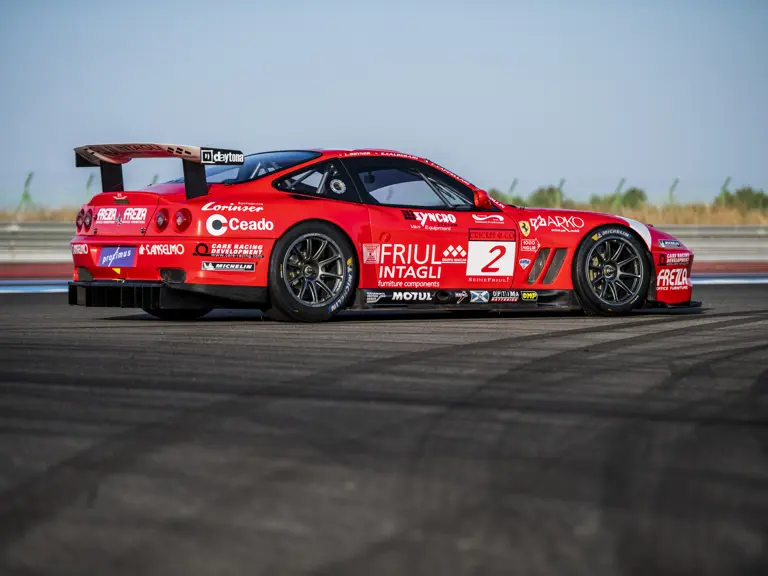
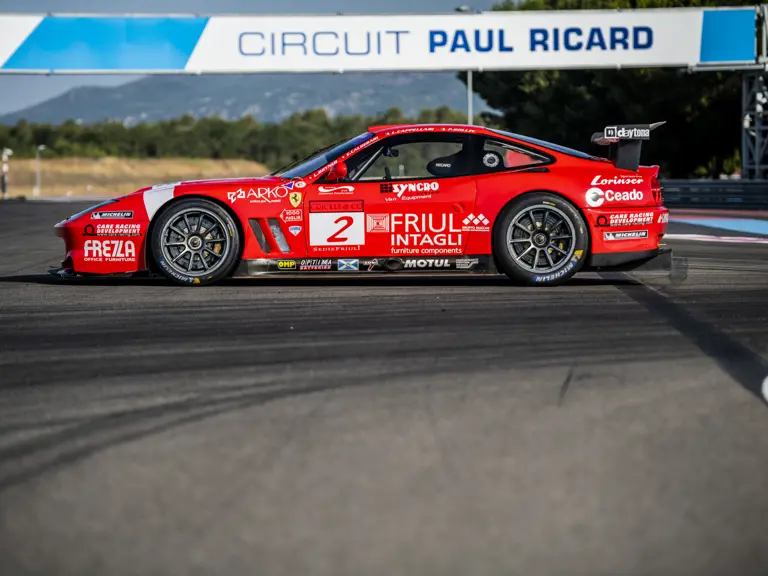
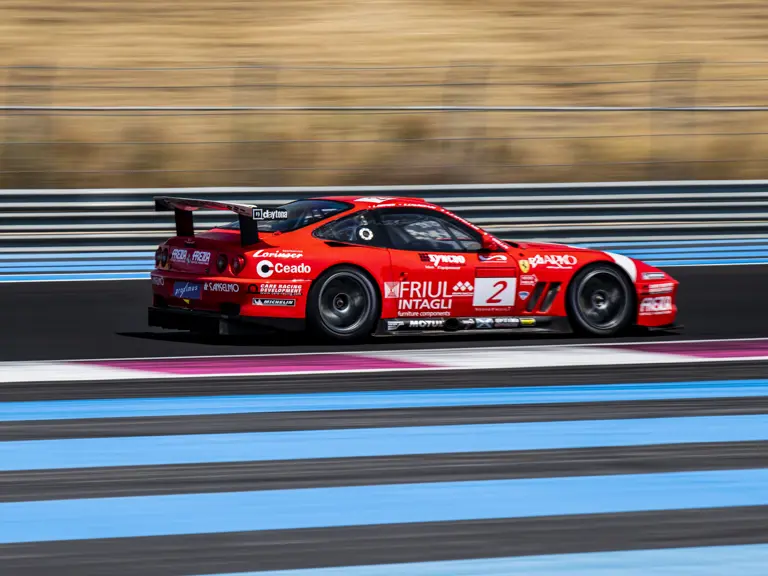
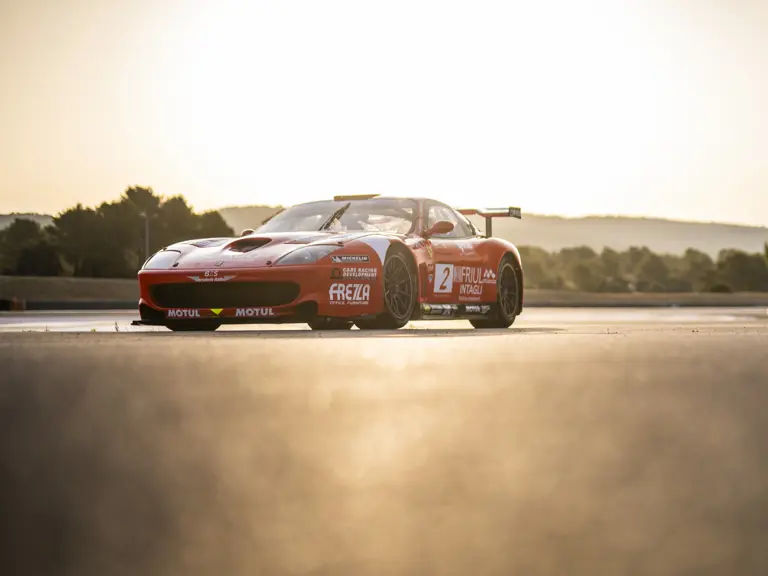
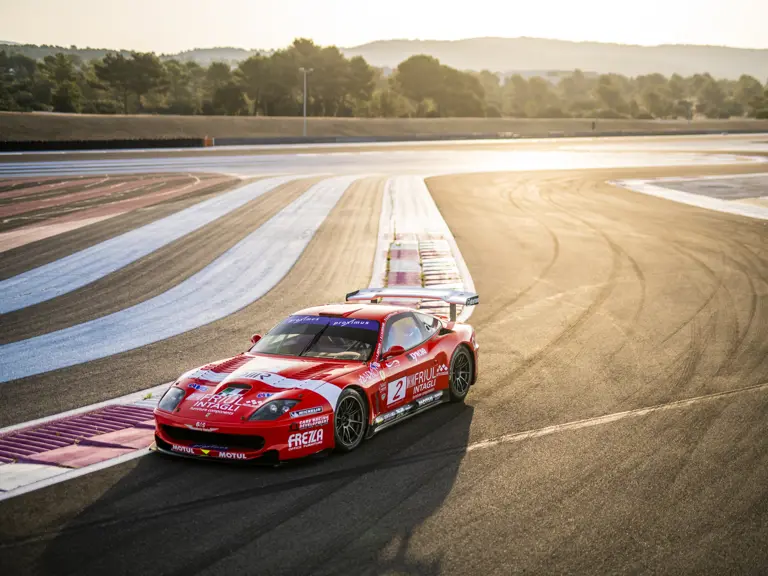
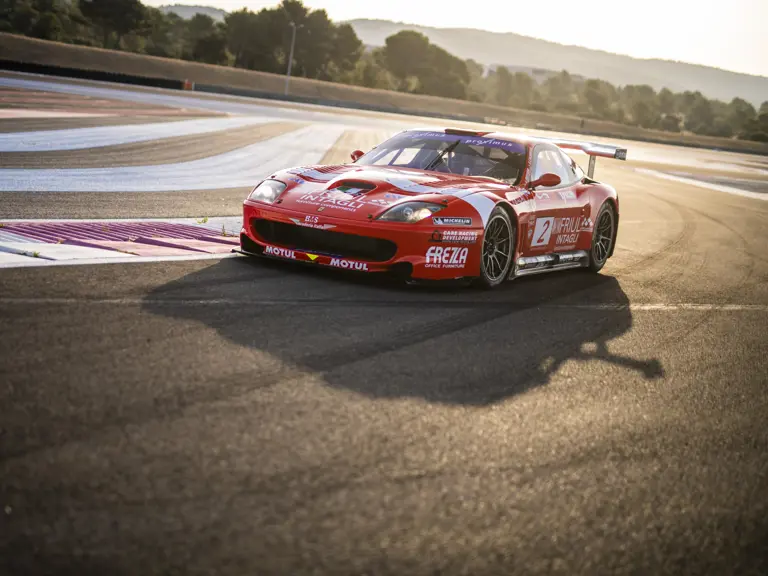
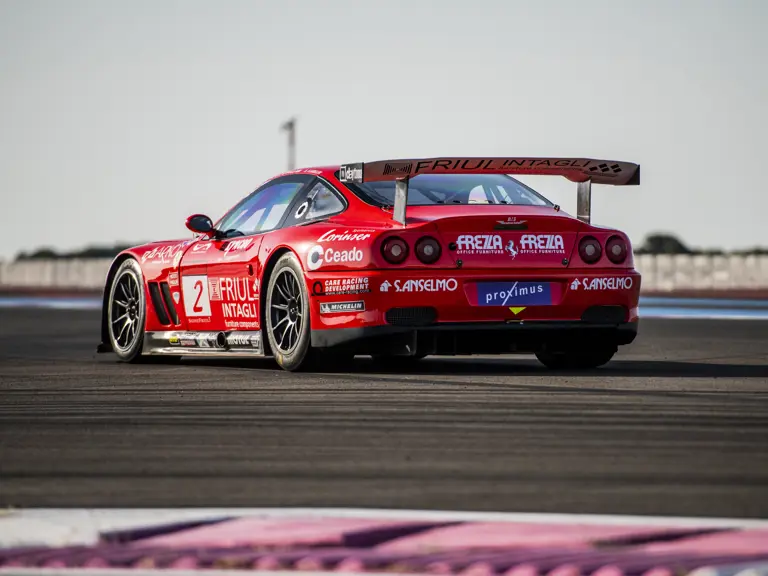
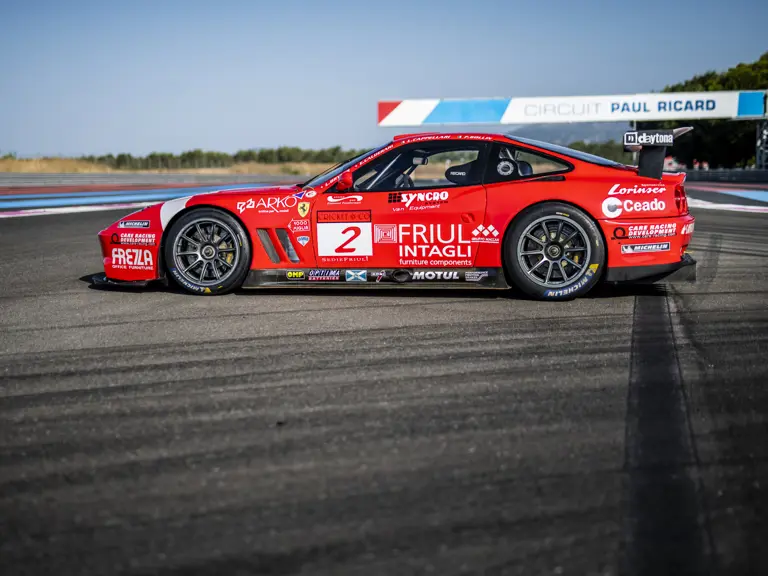
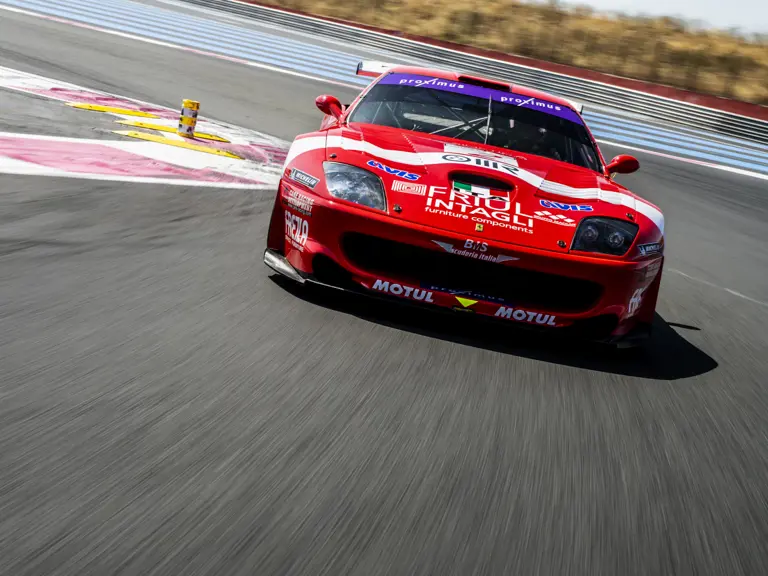
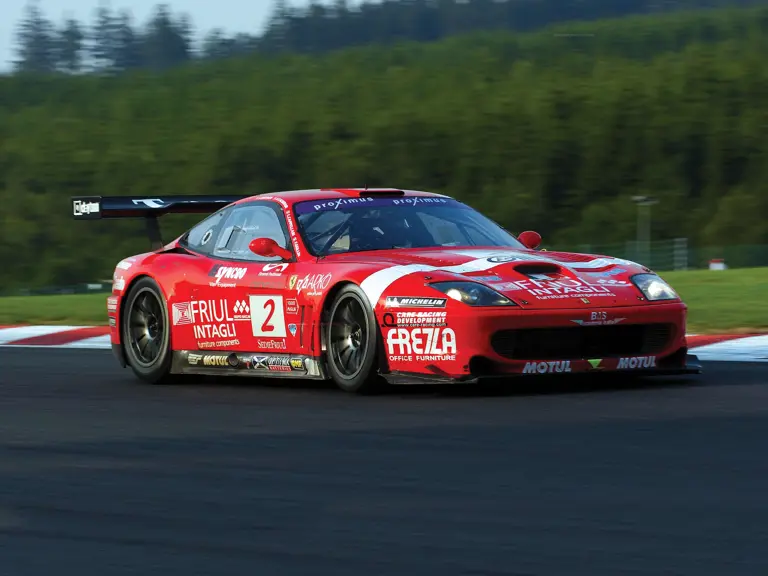
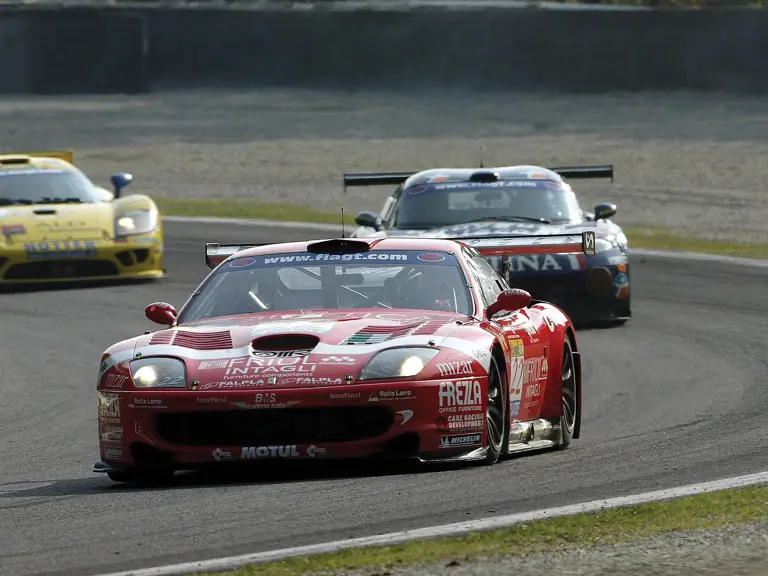
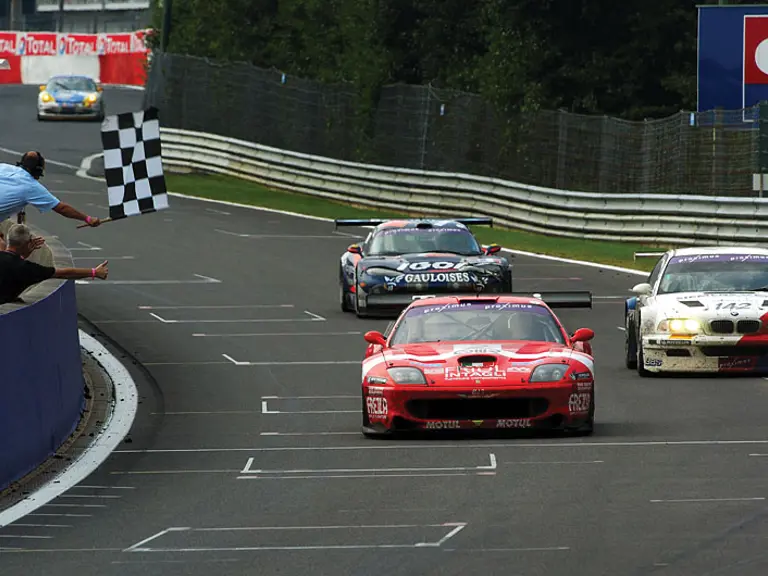
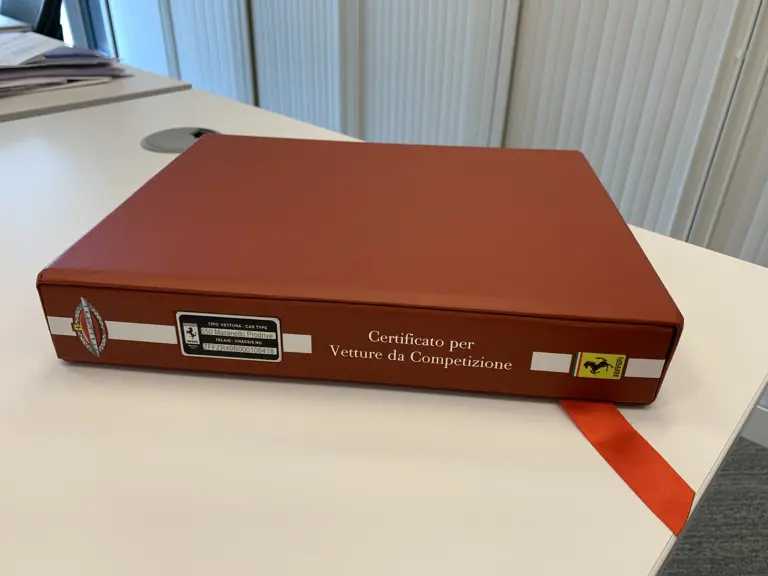
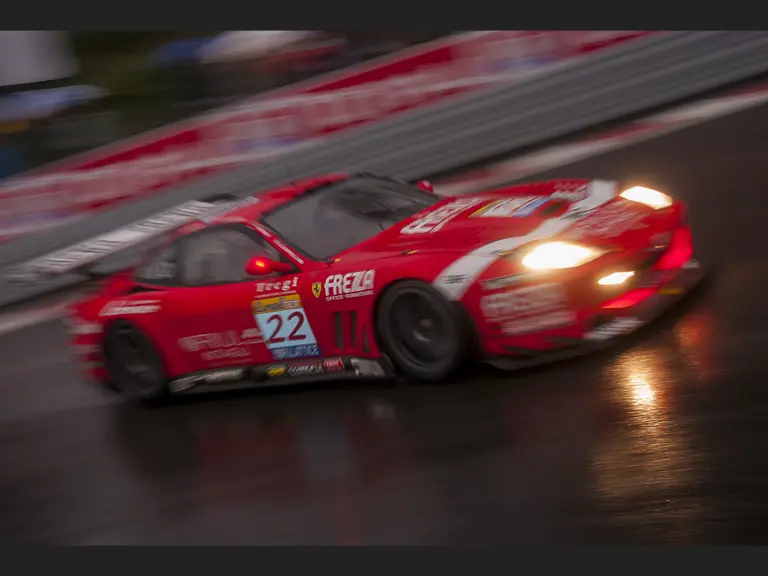
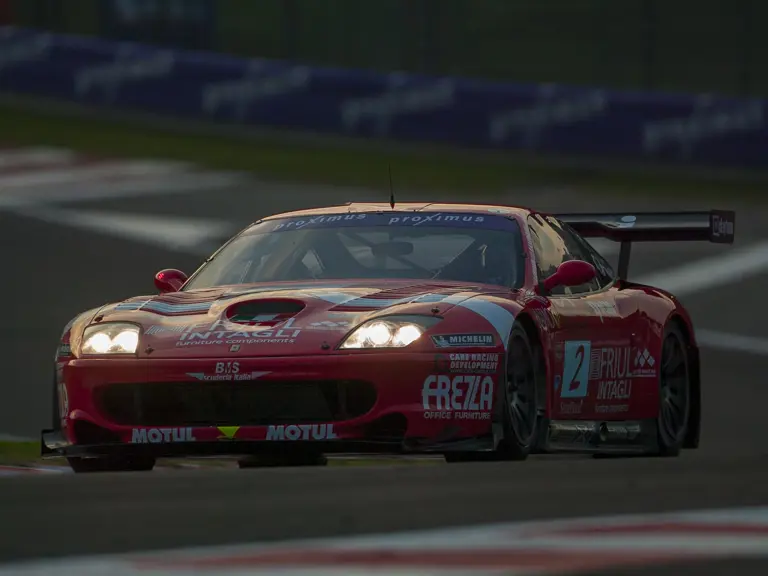
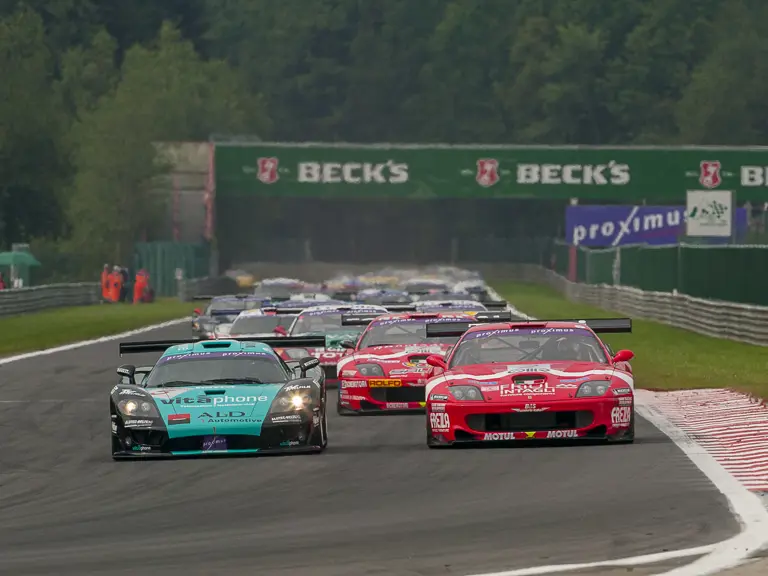
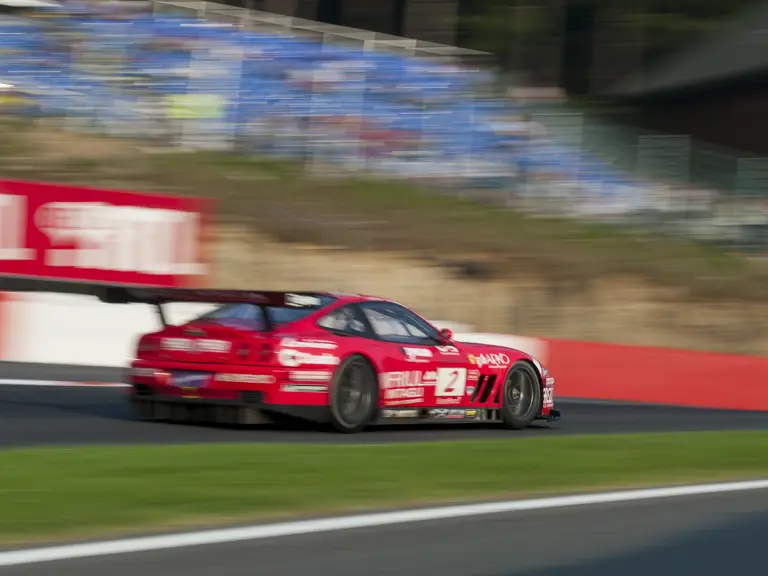
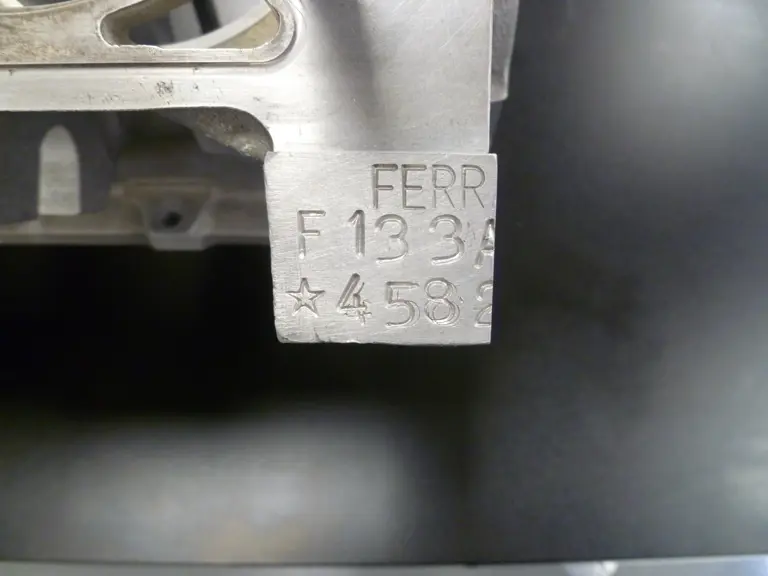
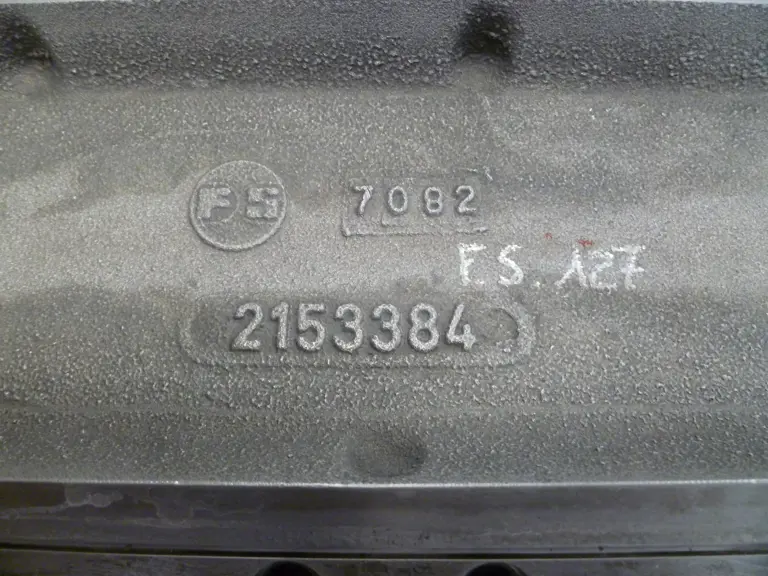
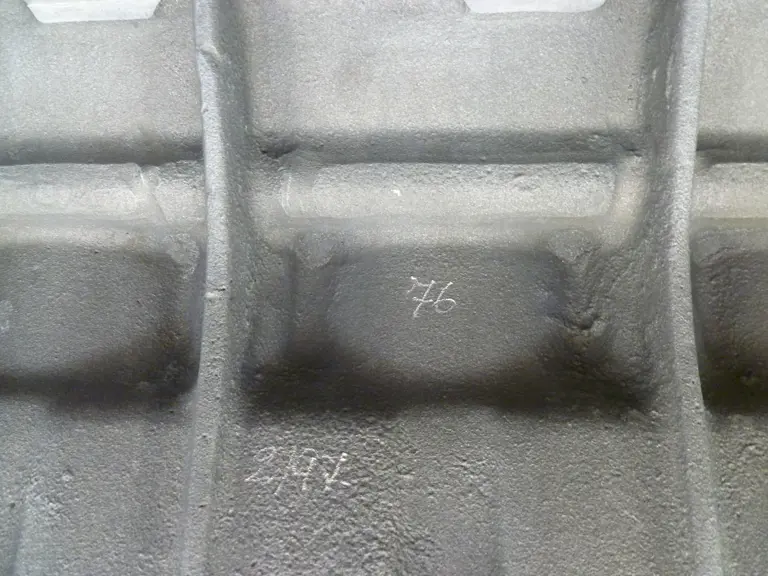
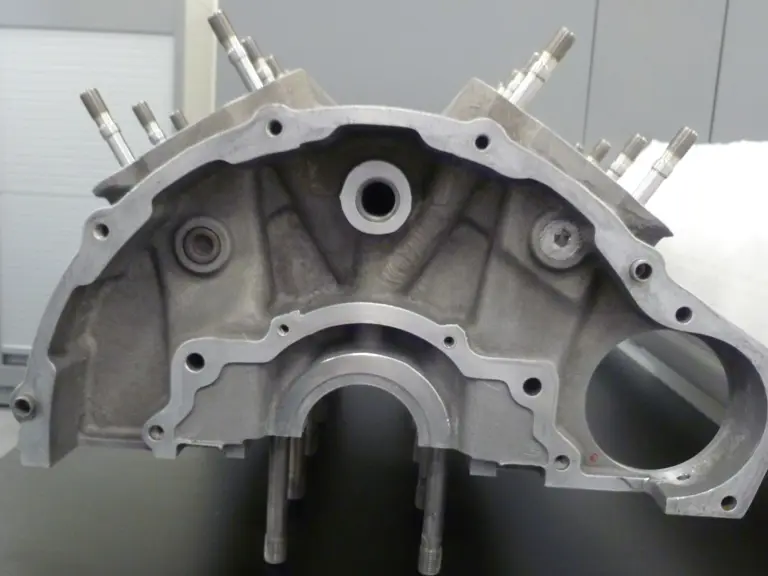
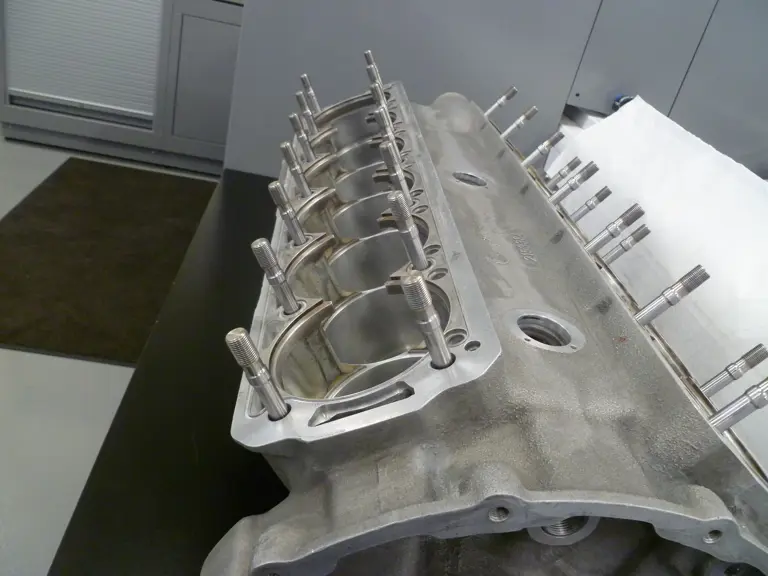

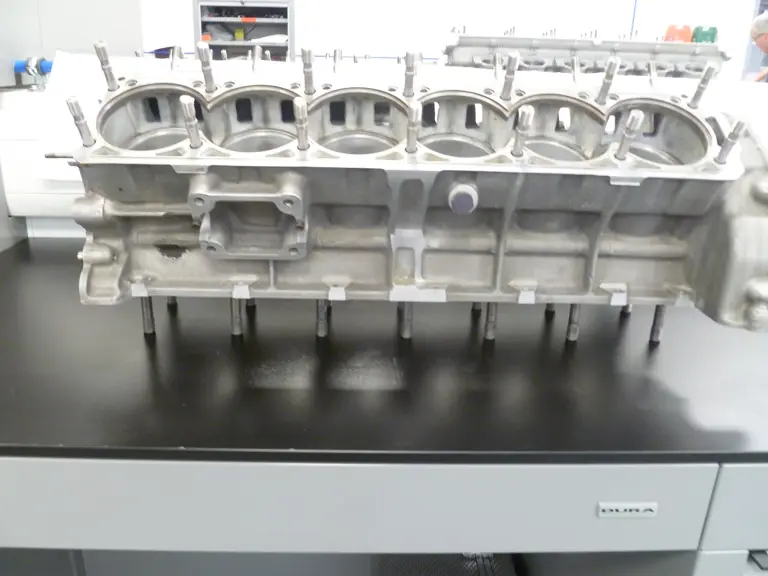
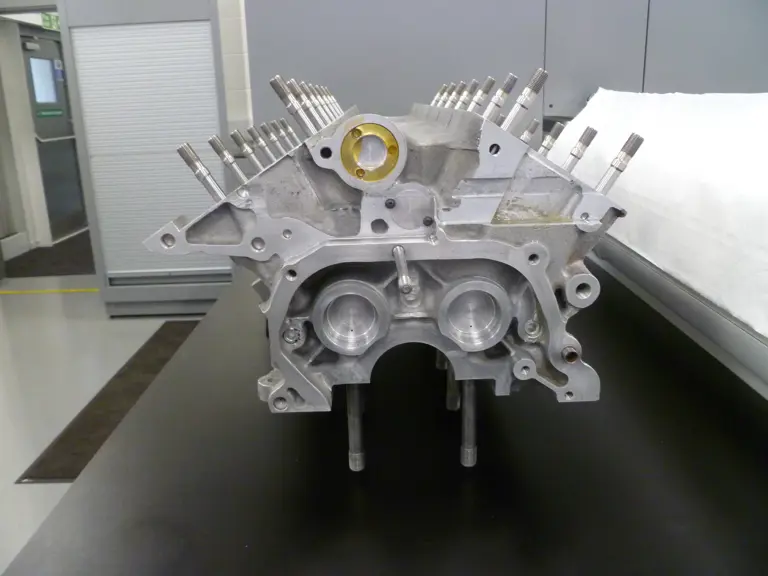
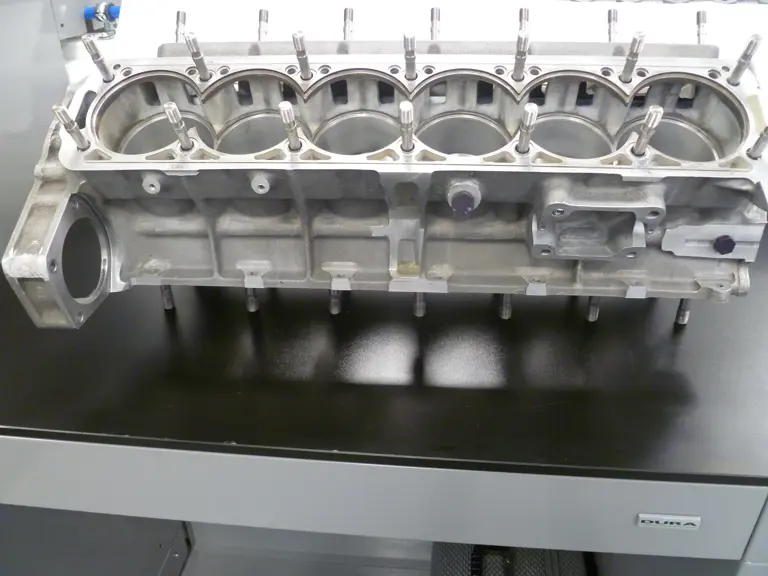
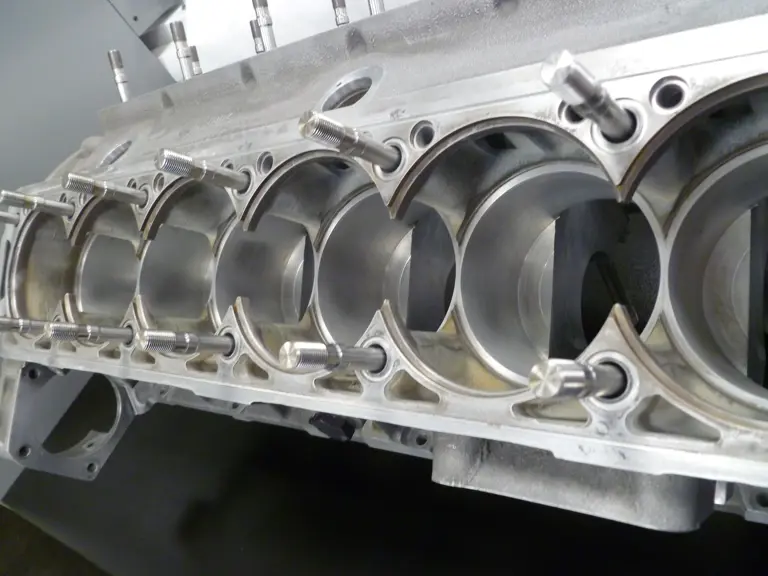
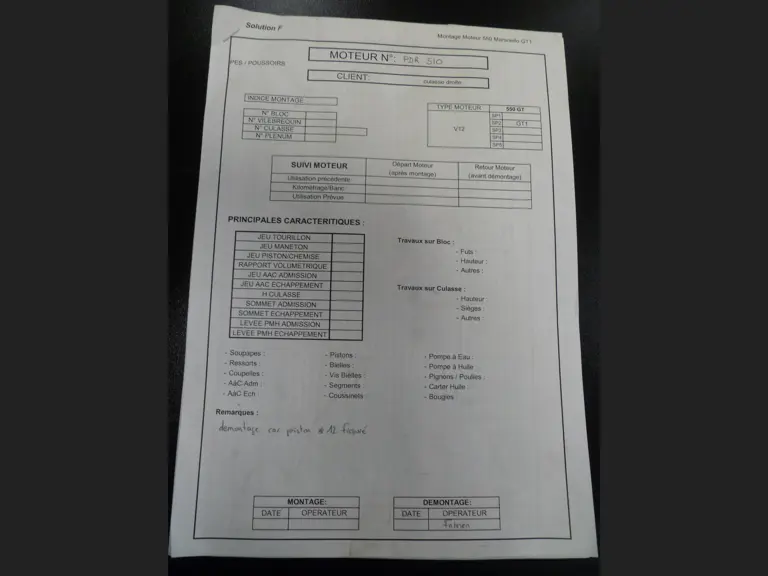
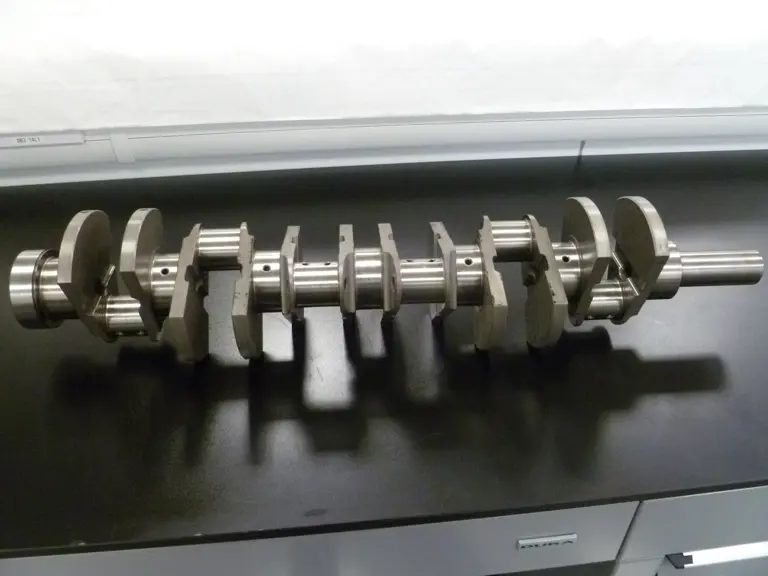
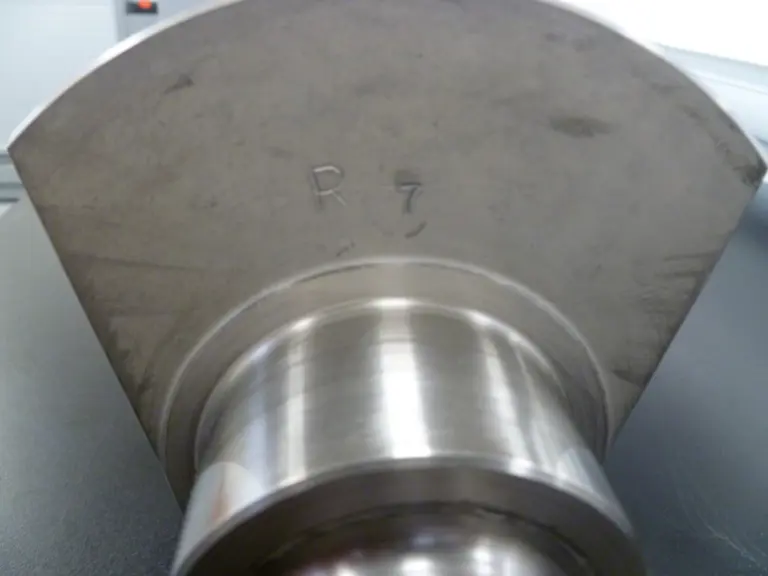

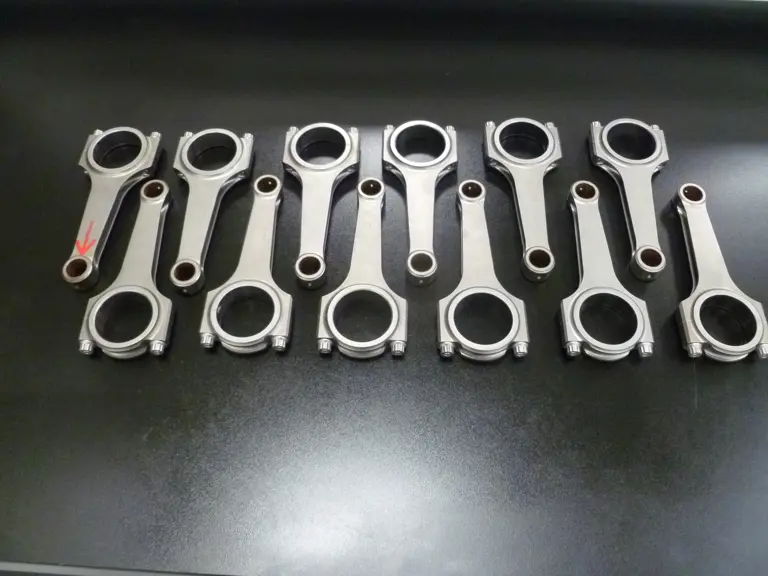
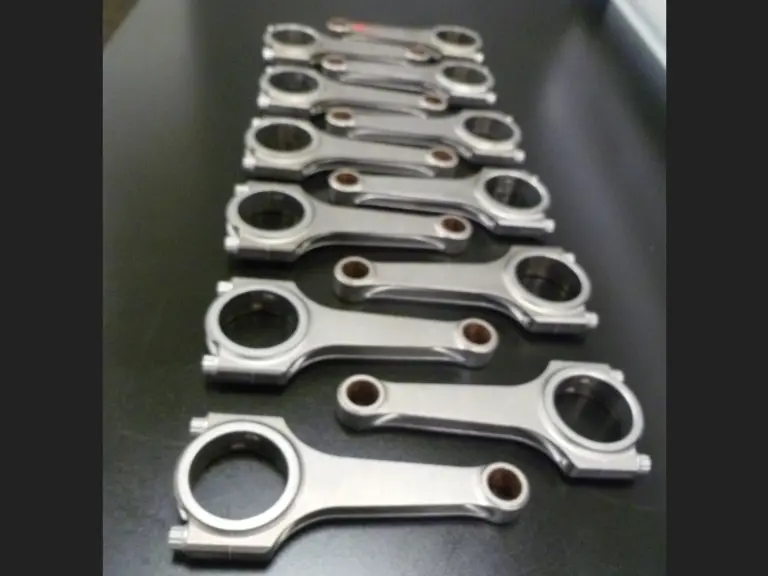
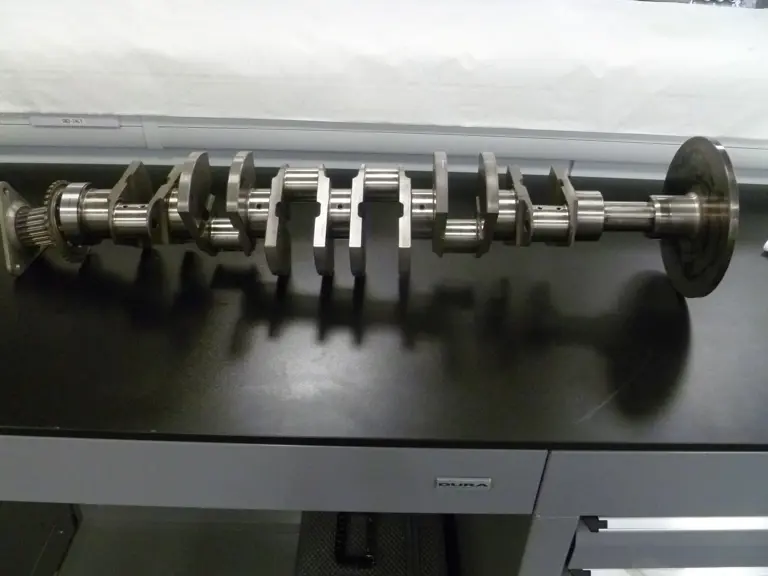
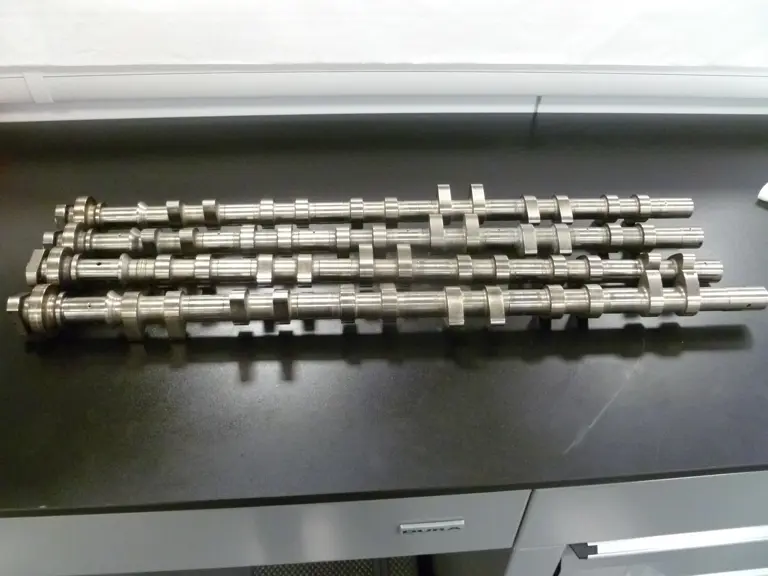
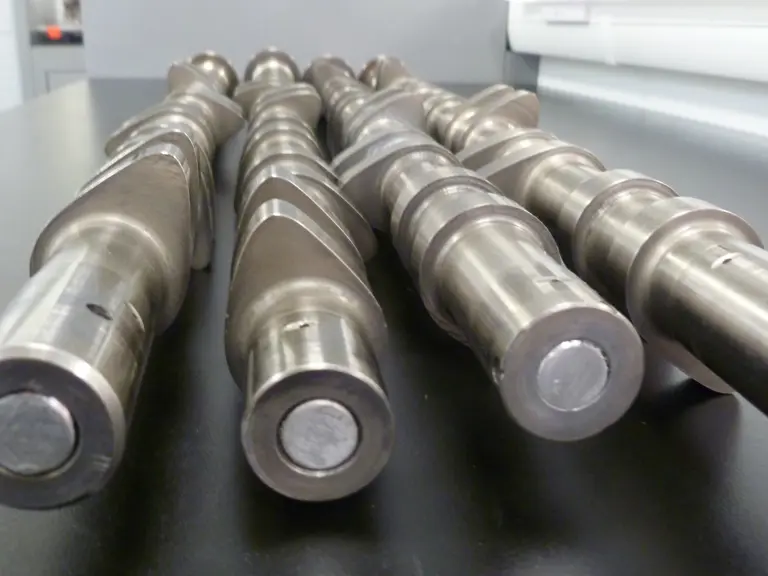
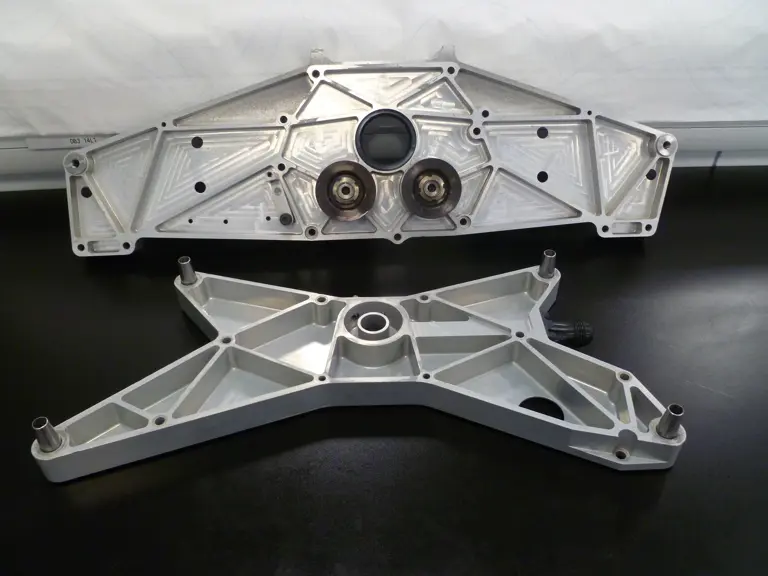
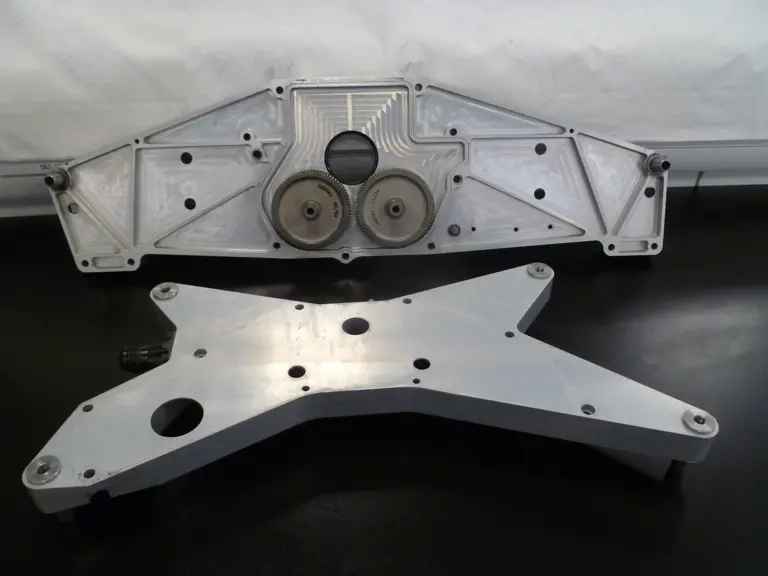
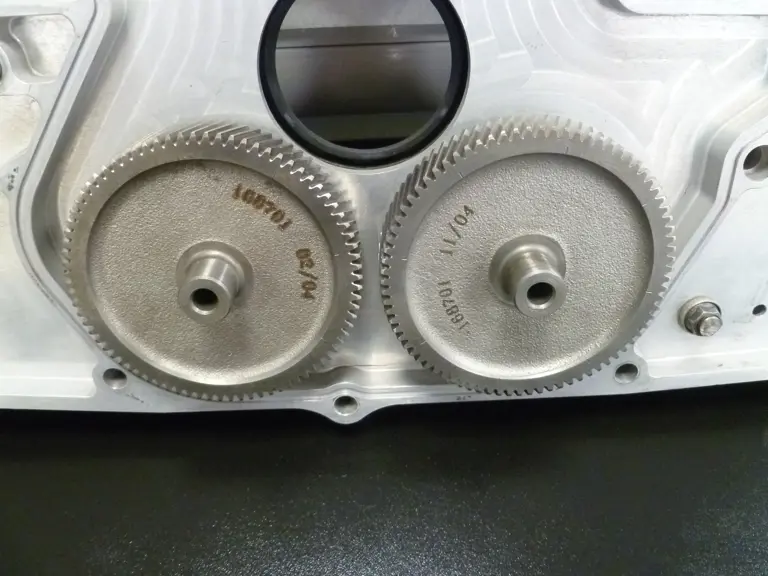
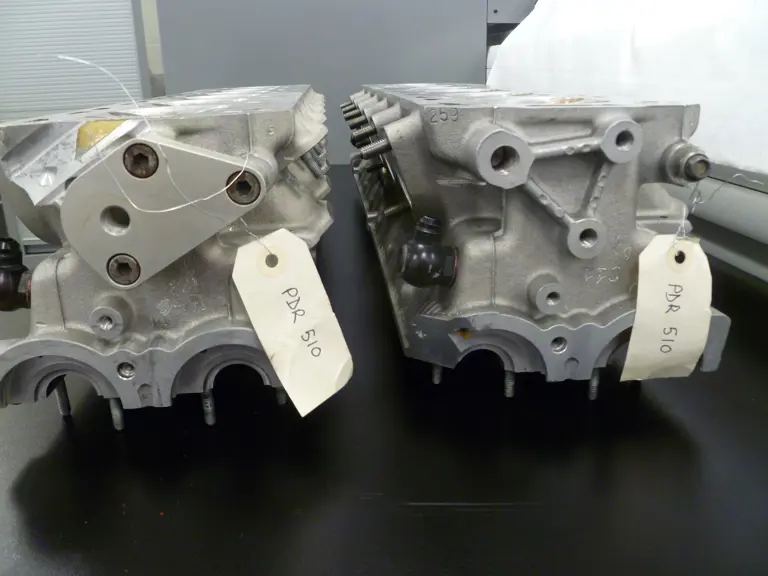
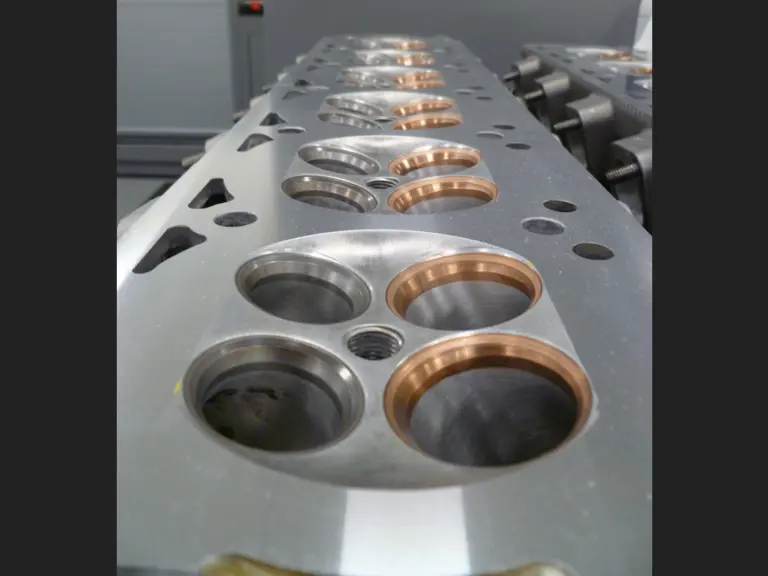
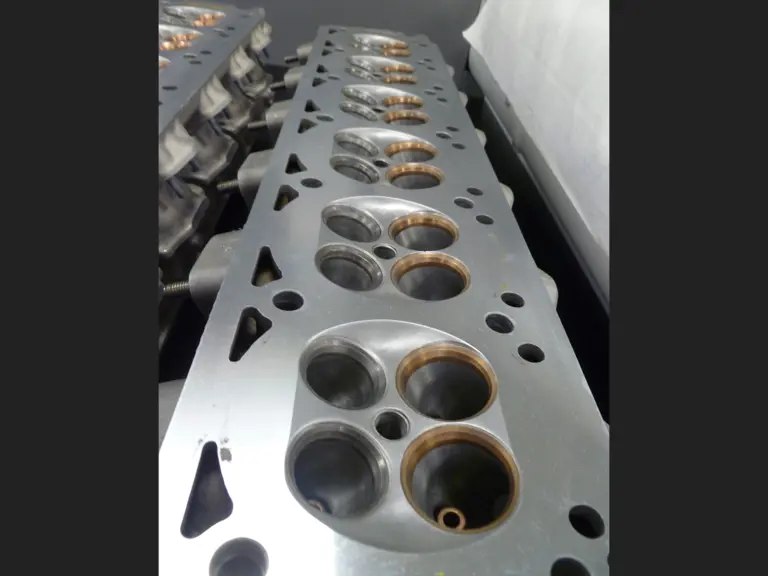
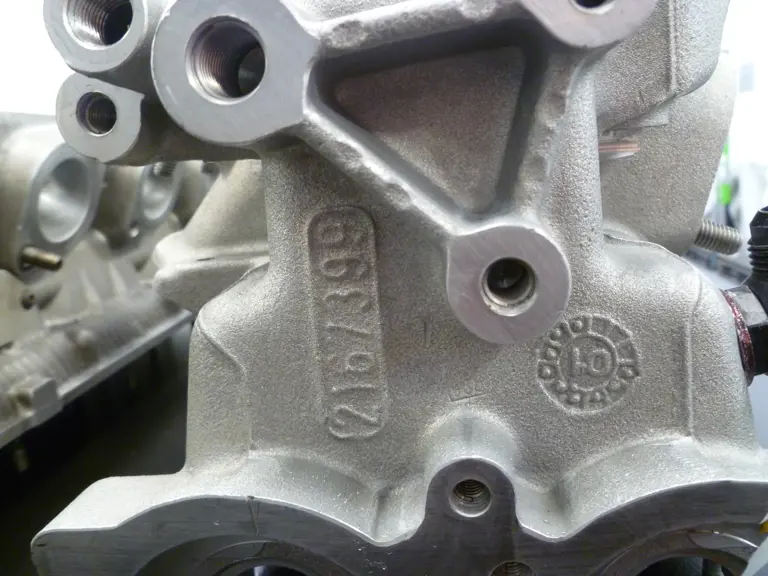
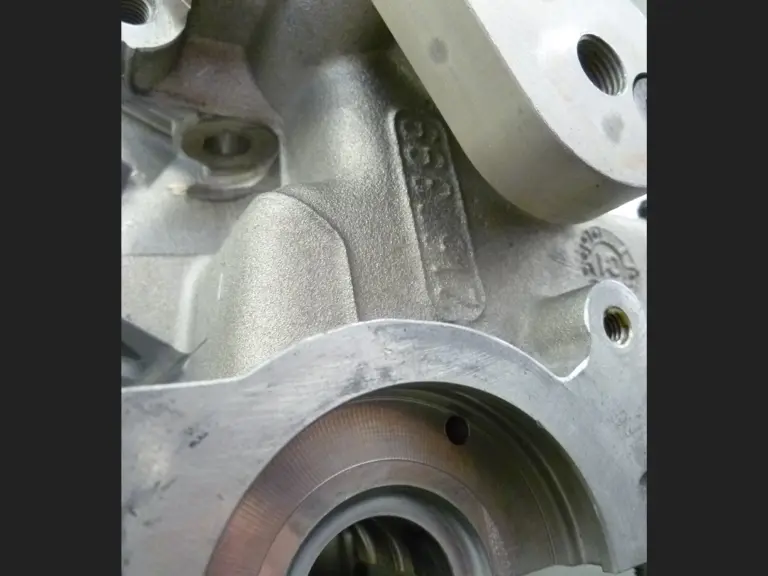
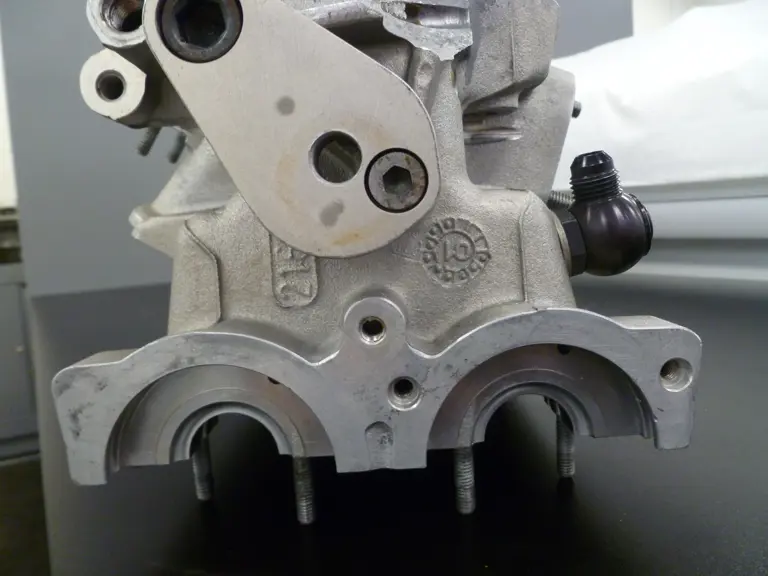
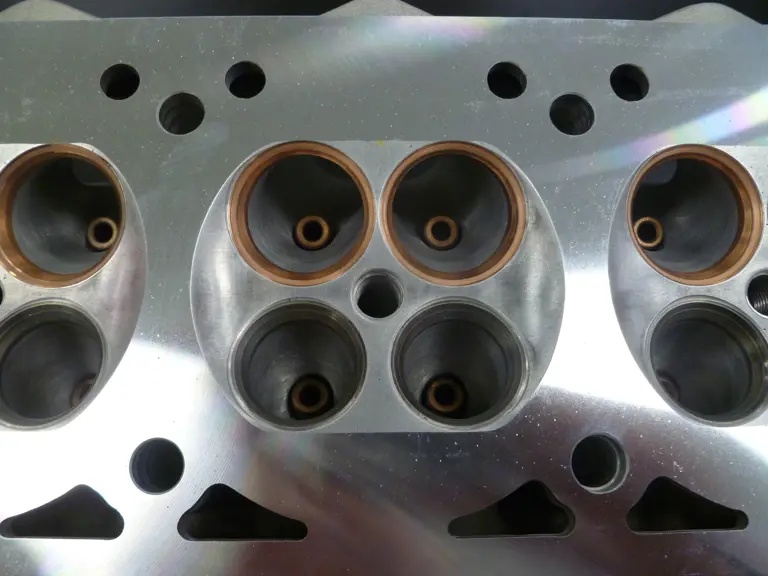
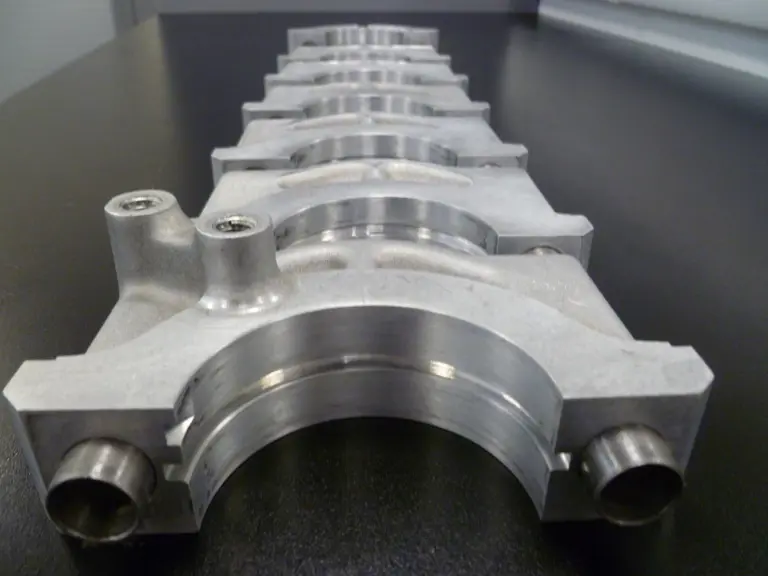
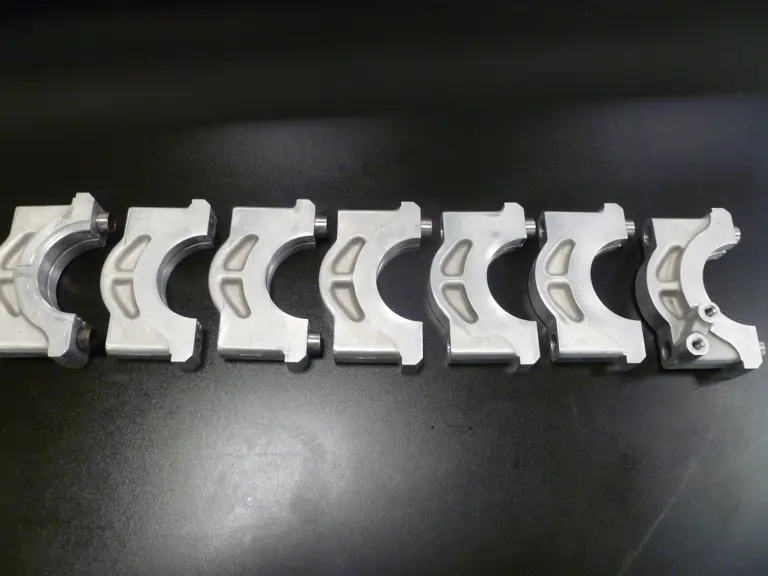
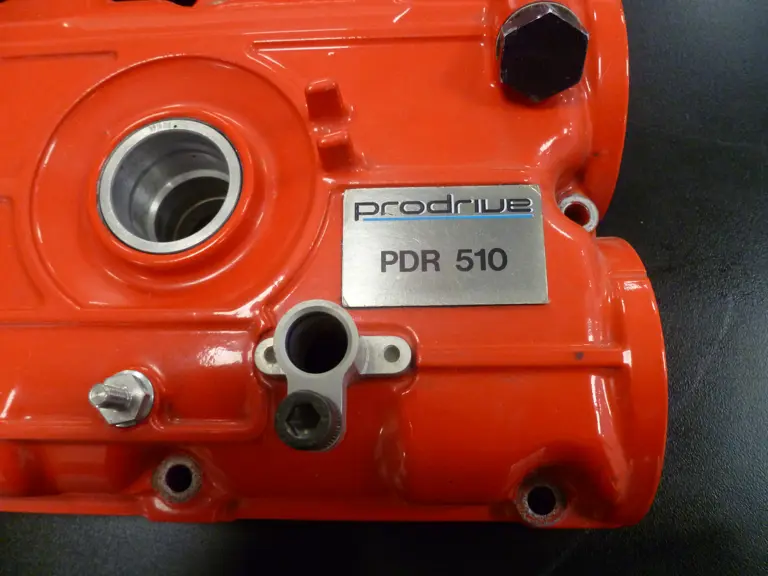
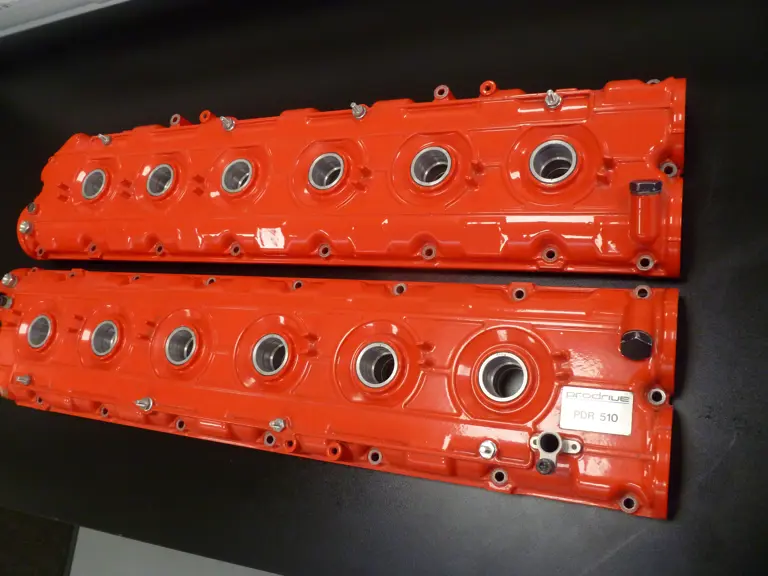
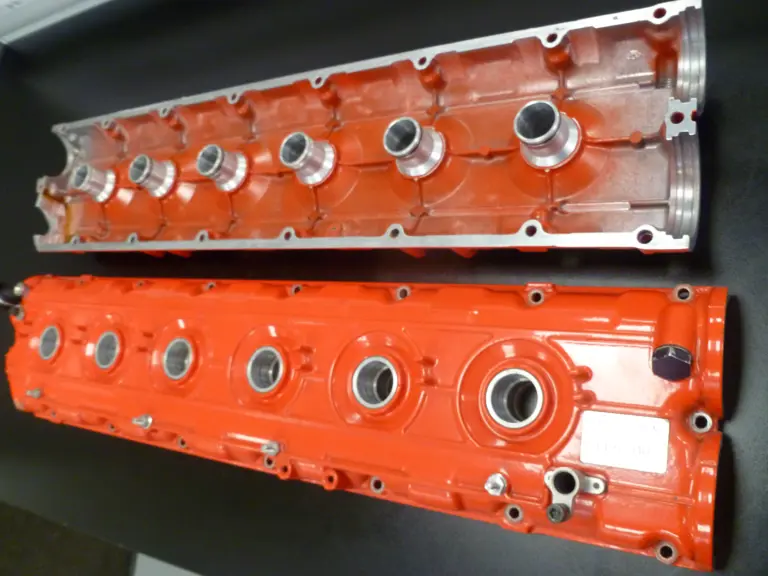
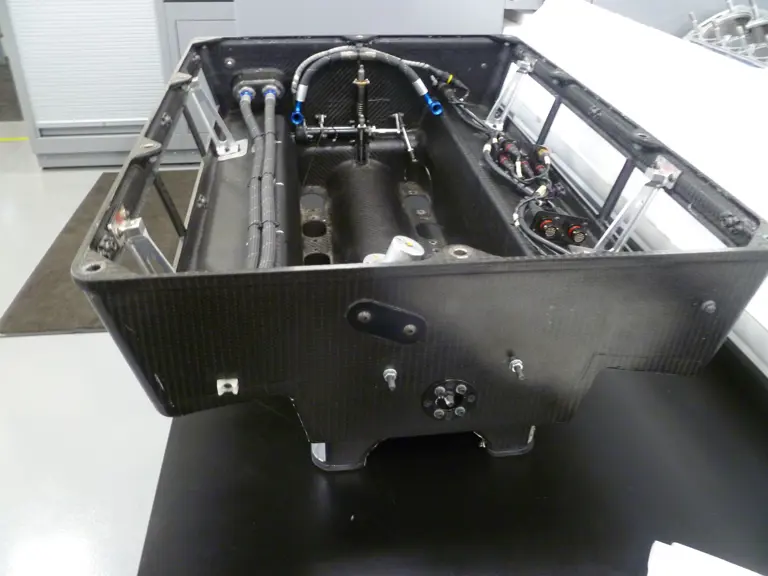
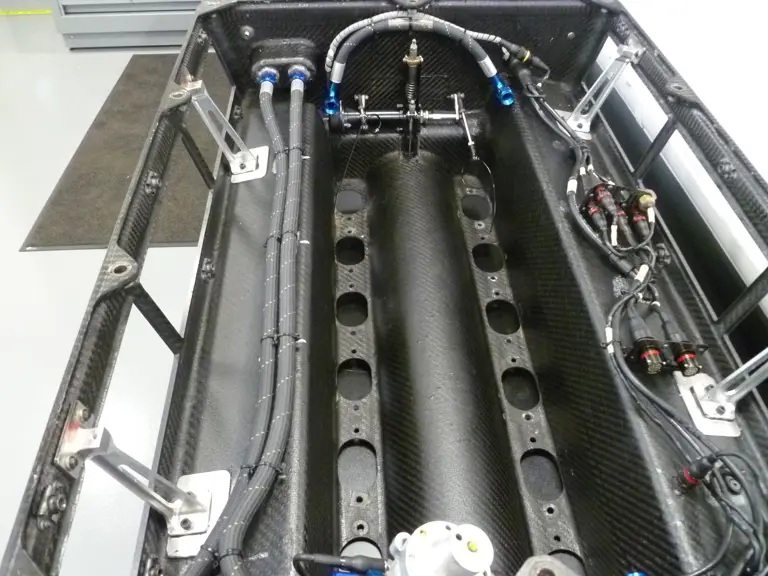
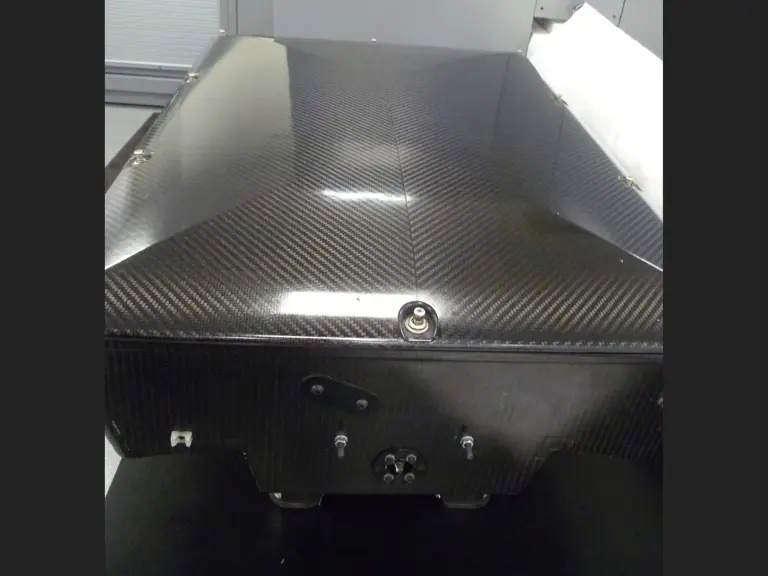
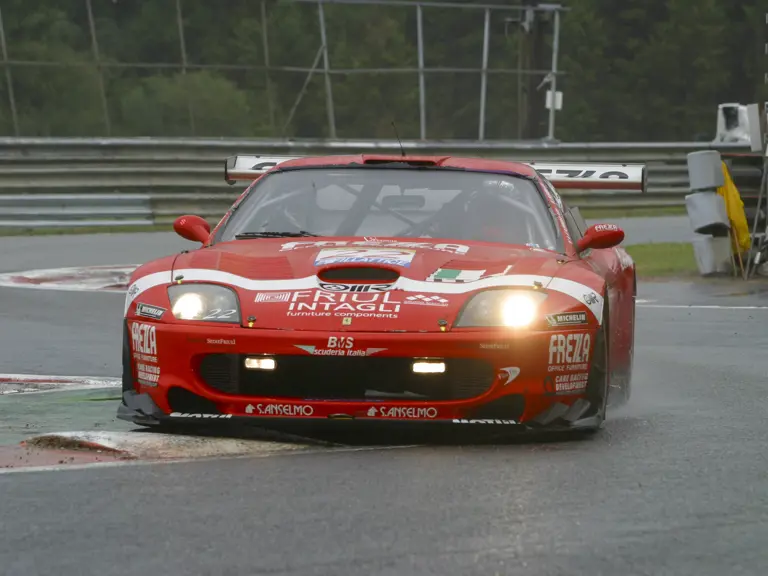
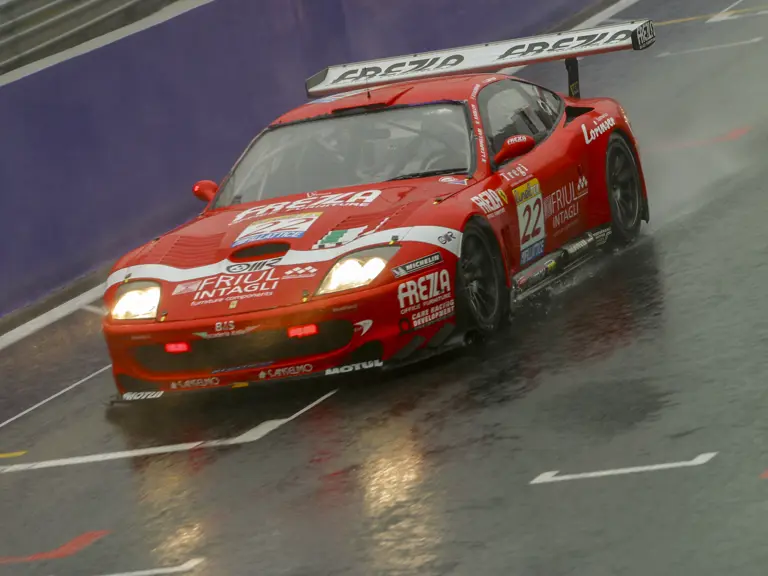
 | Signes, France
| Signes, France
